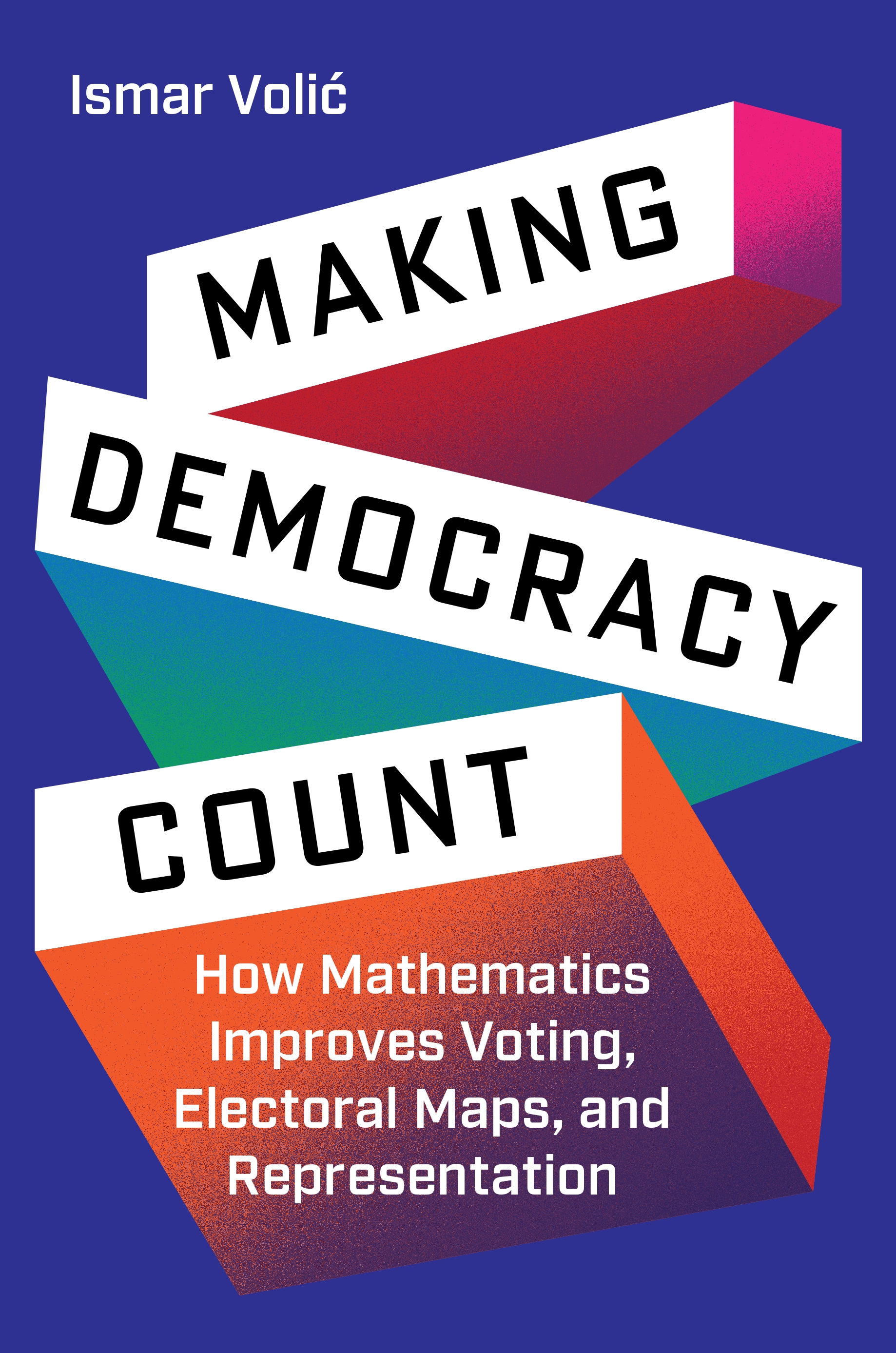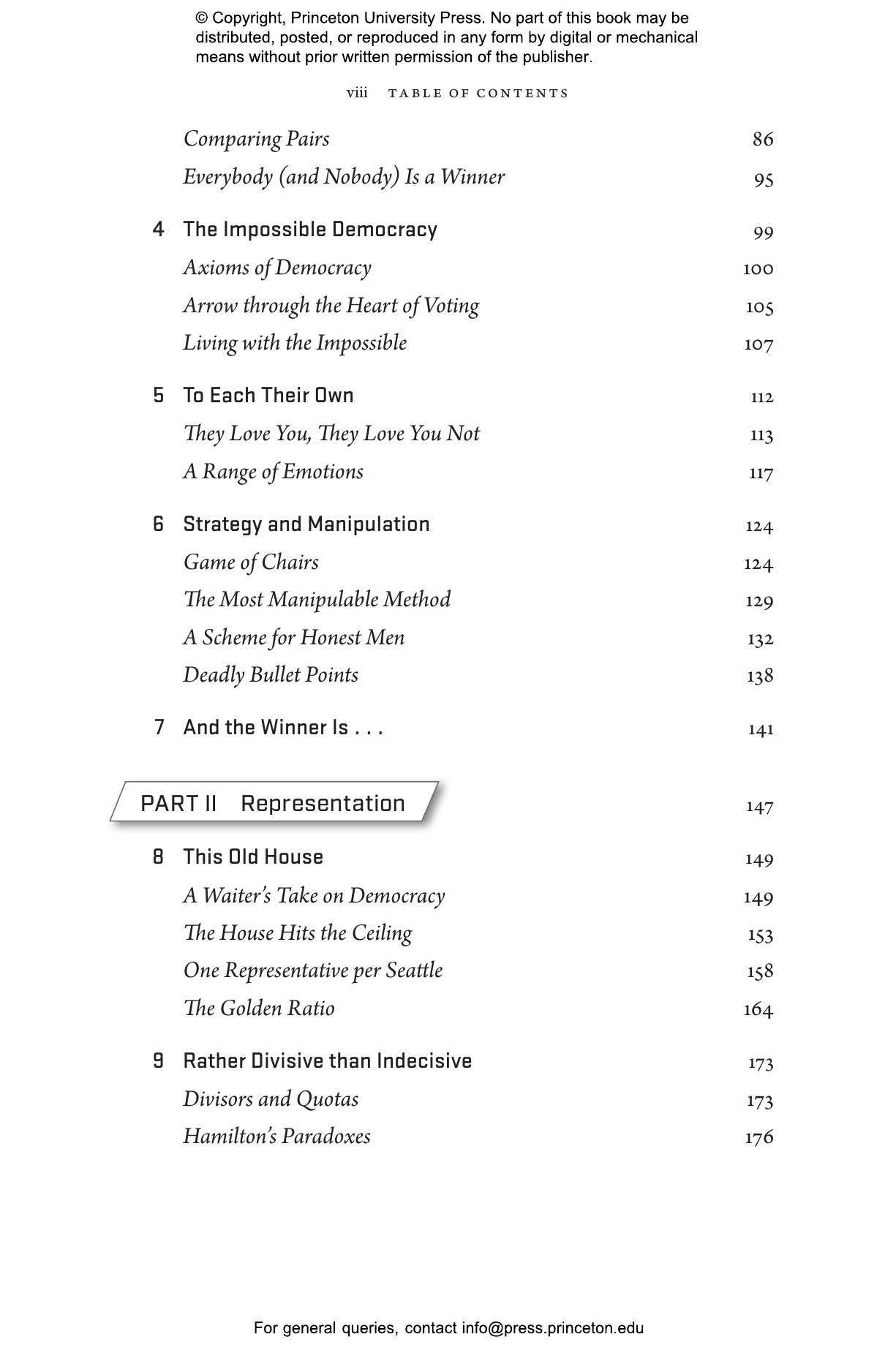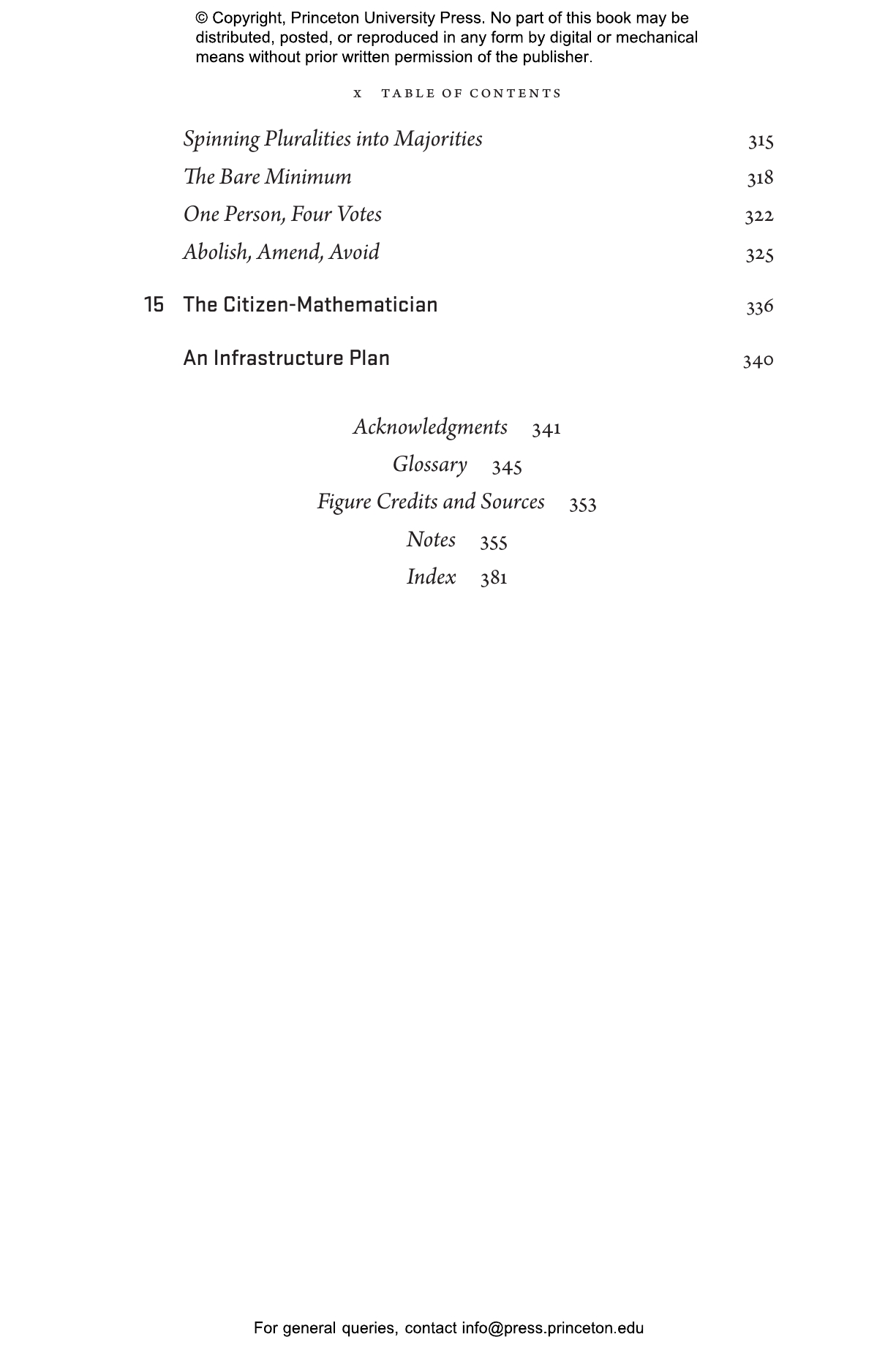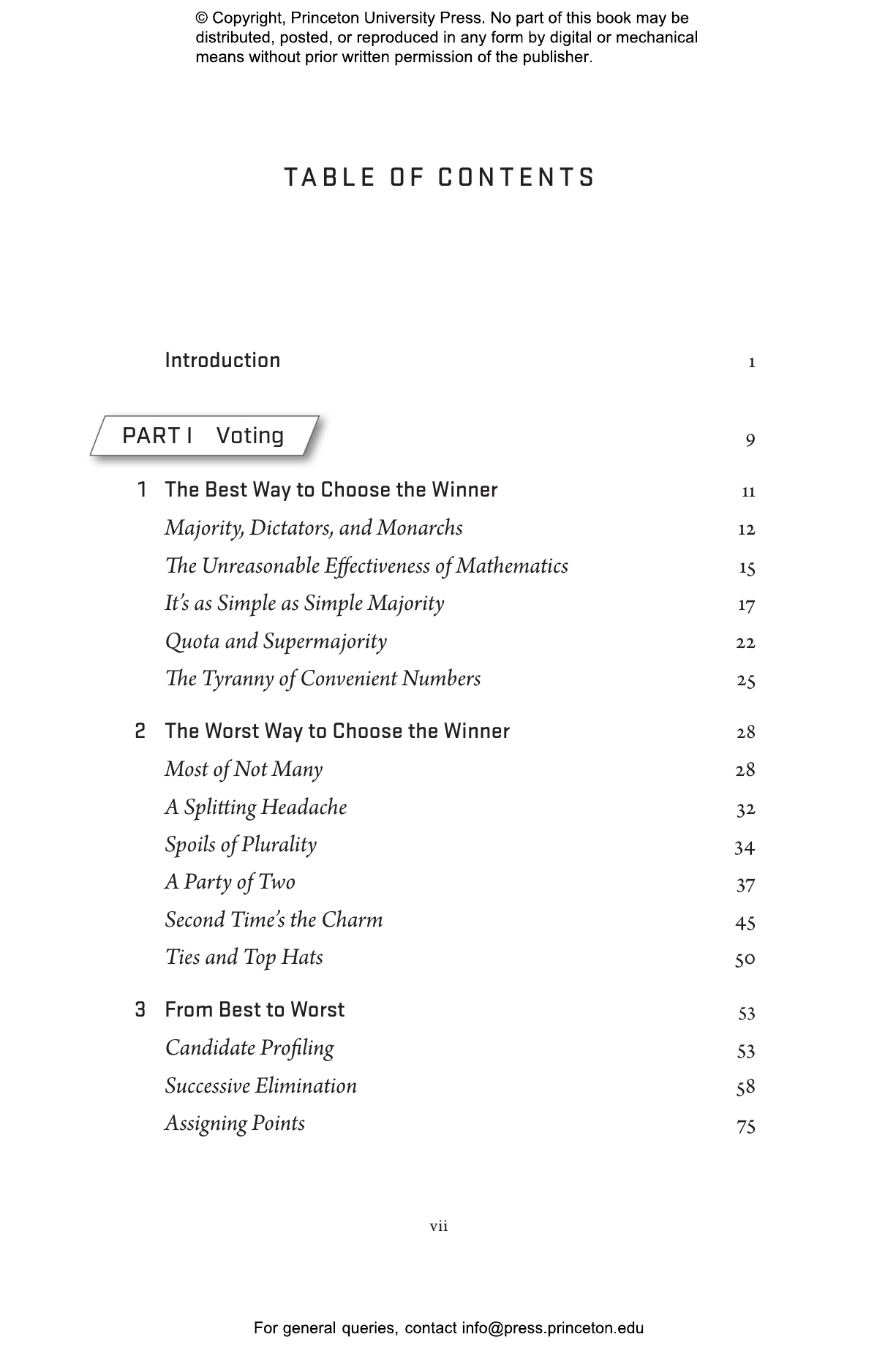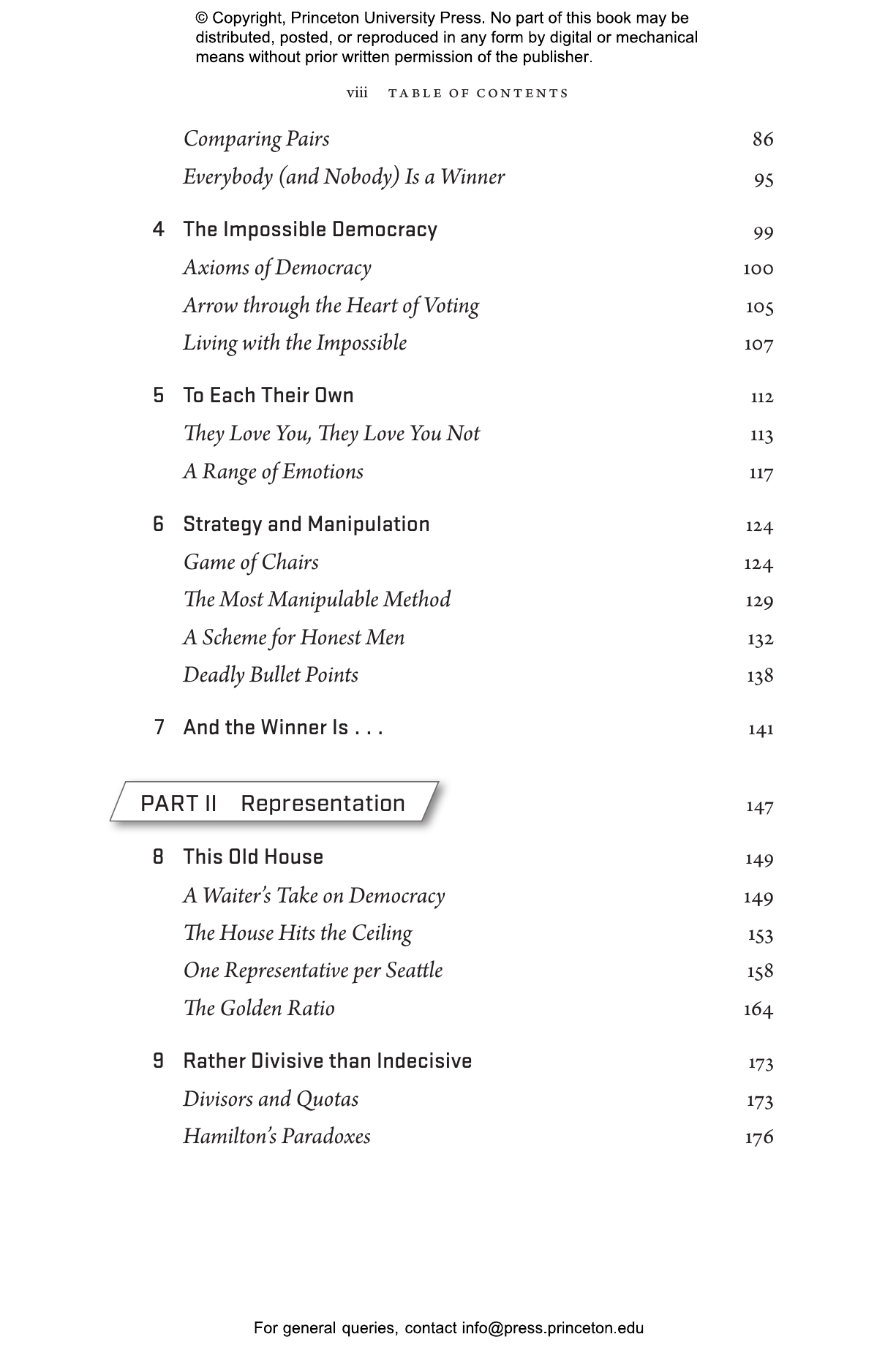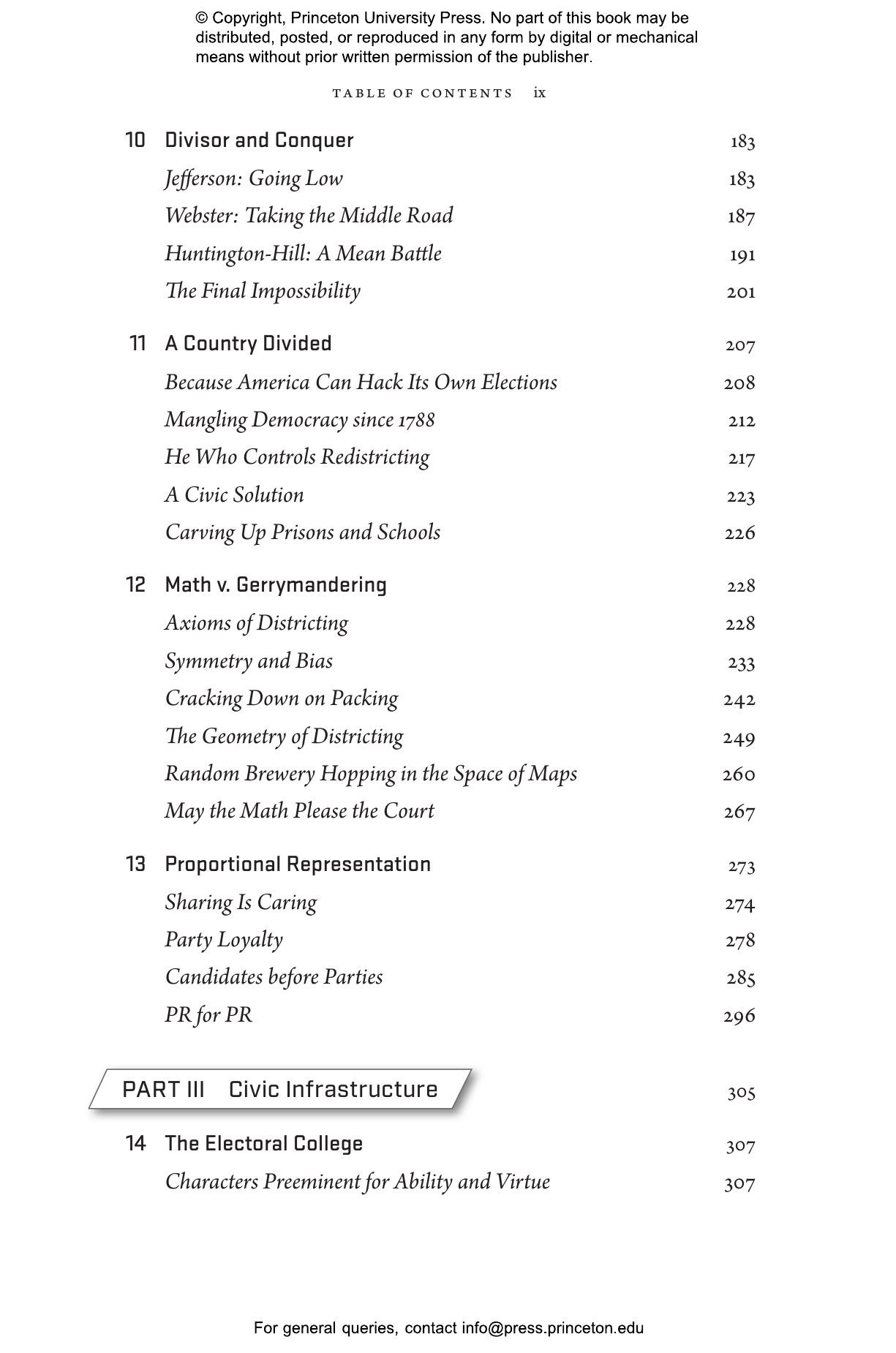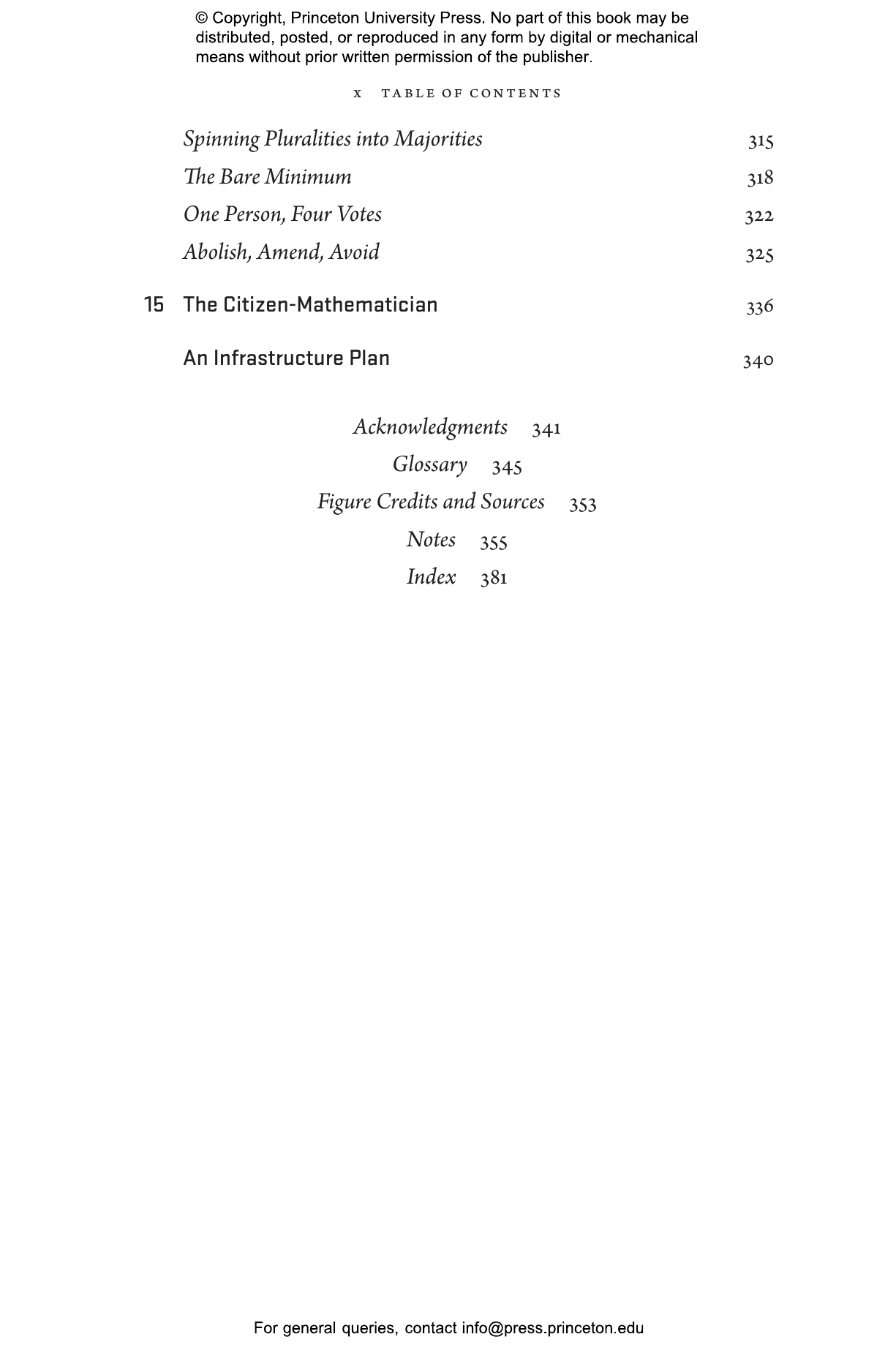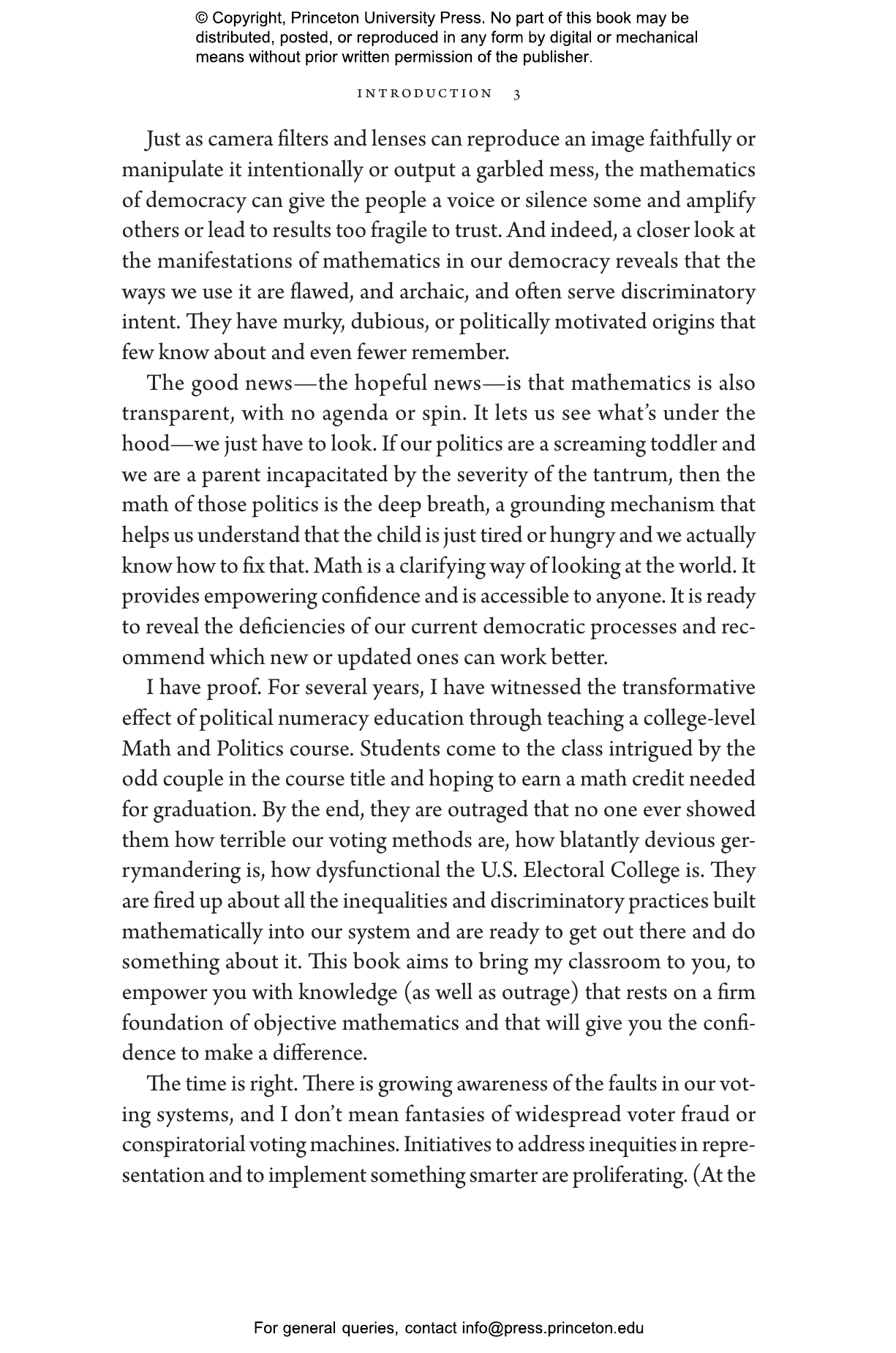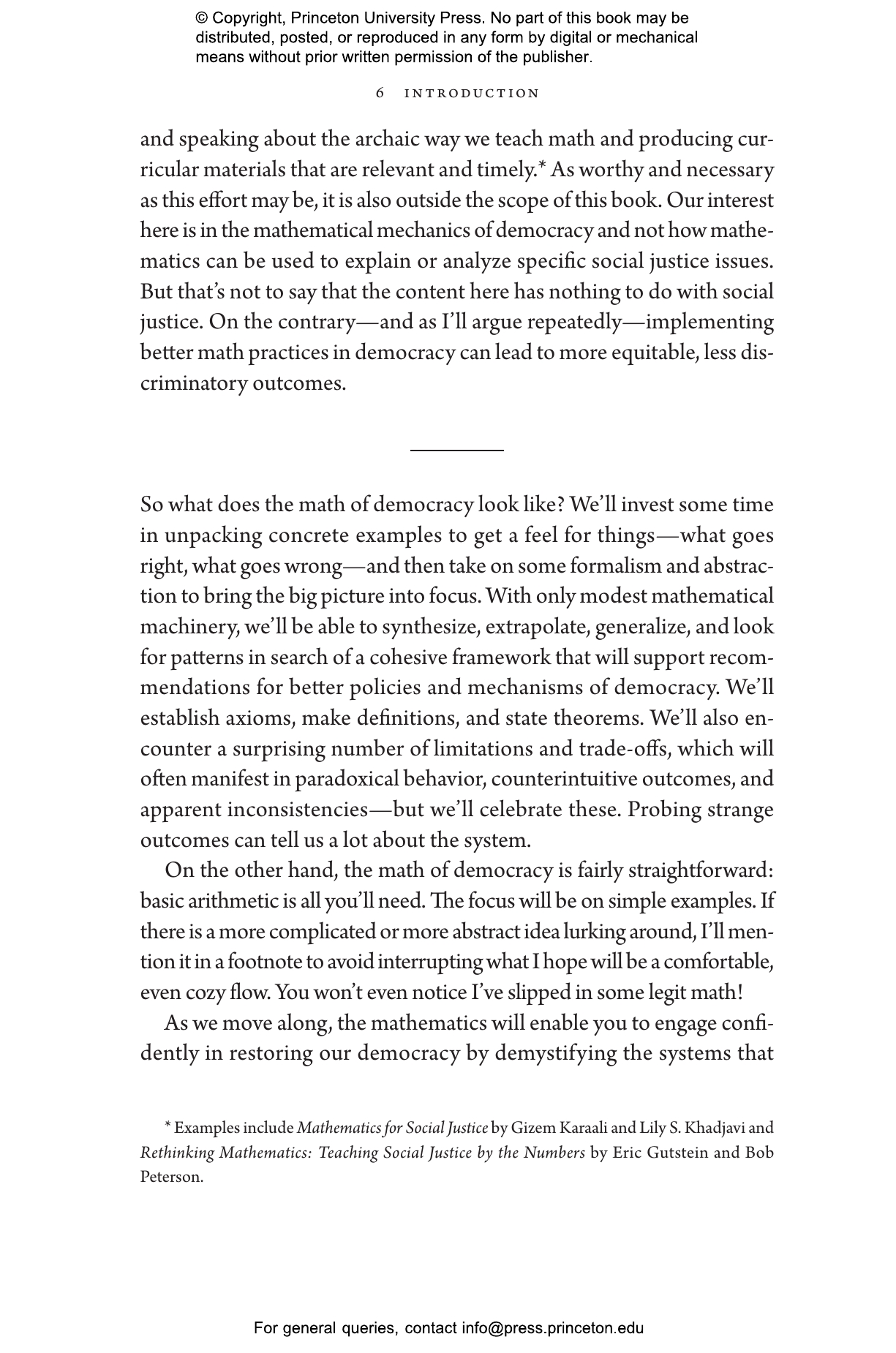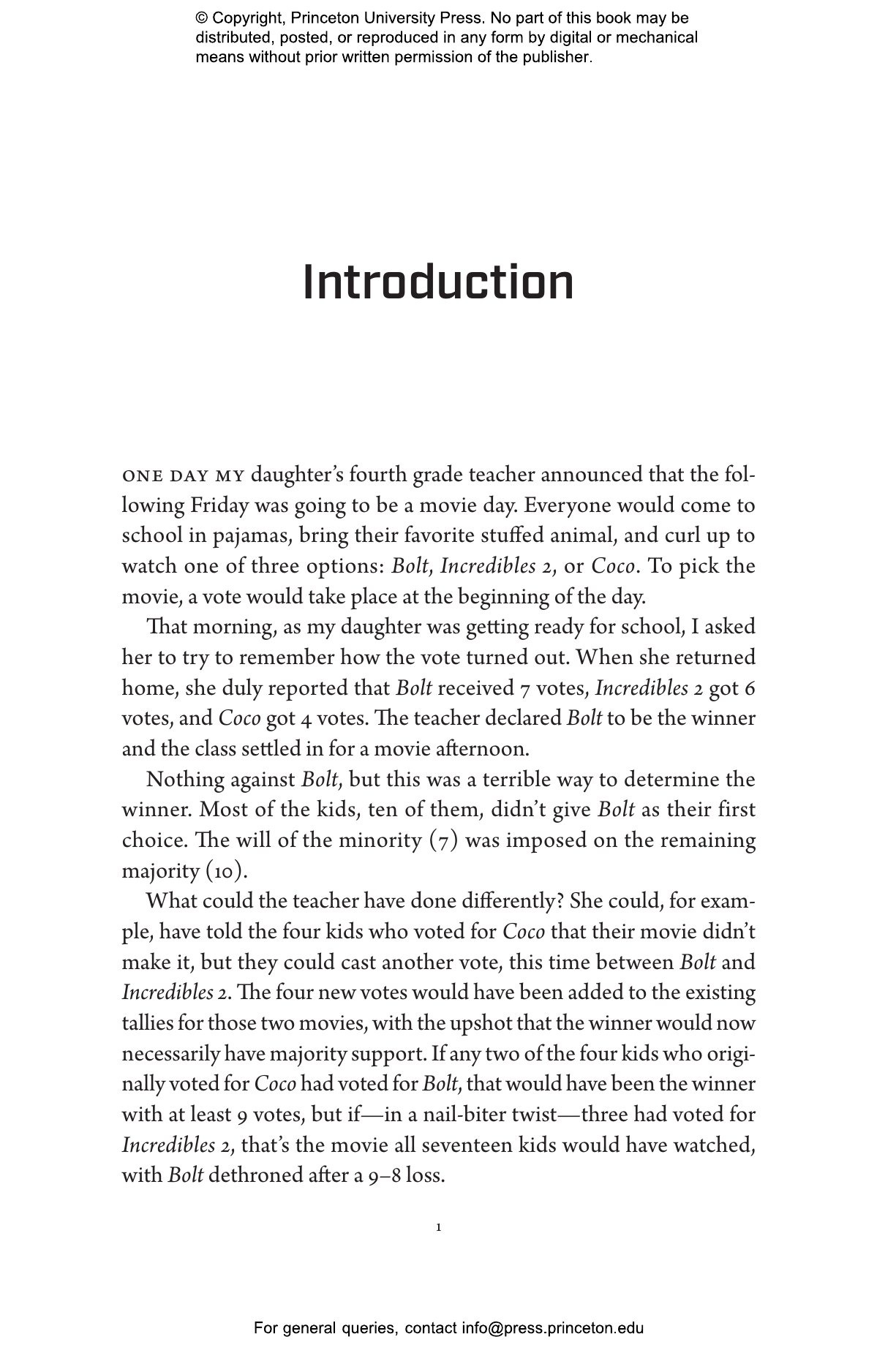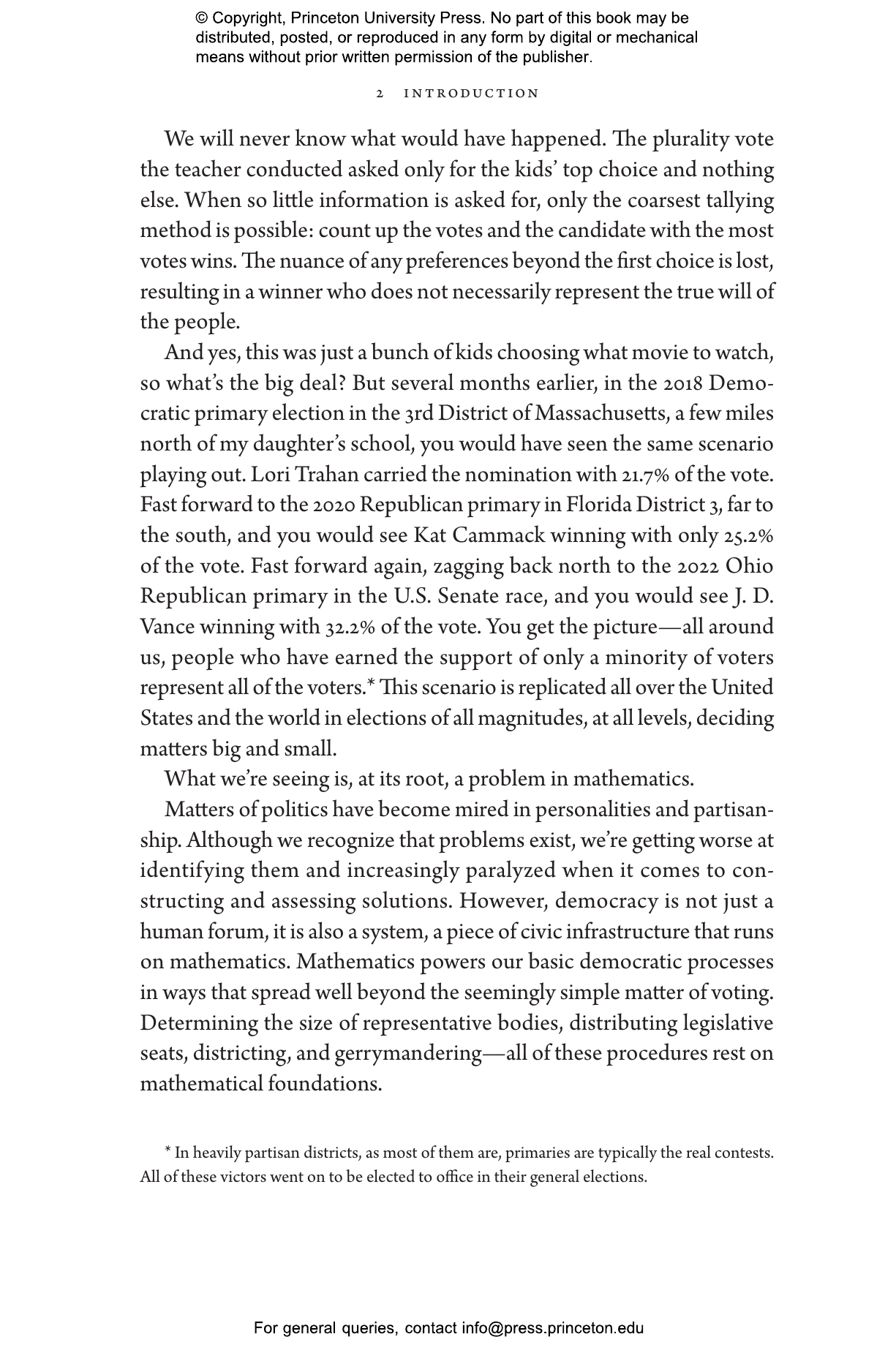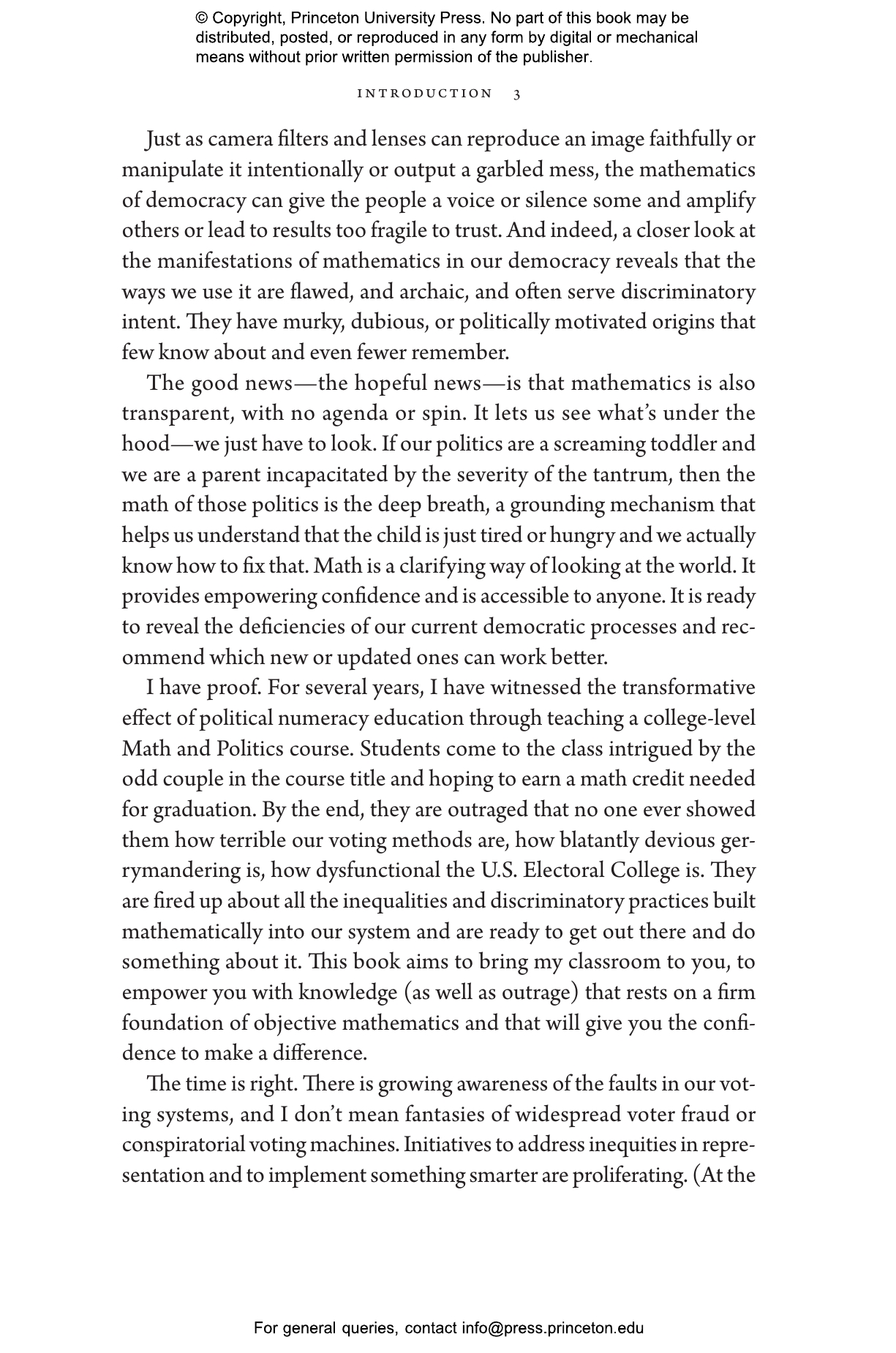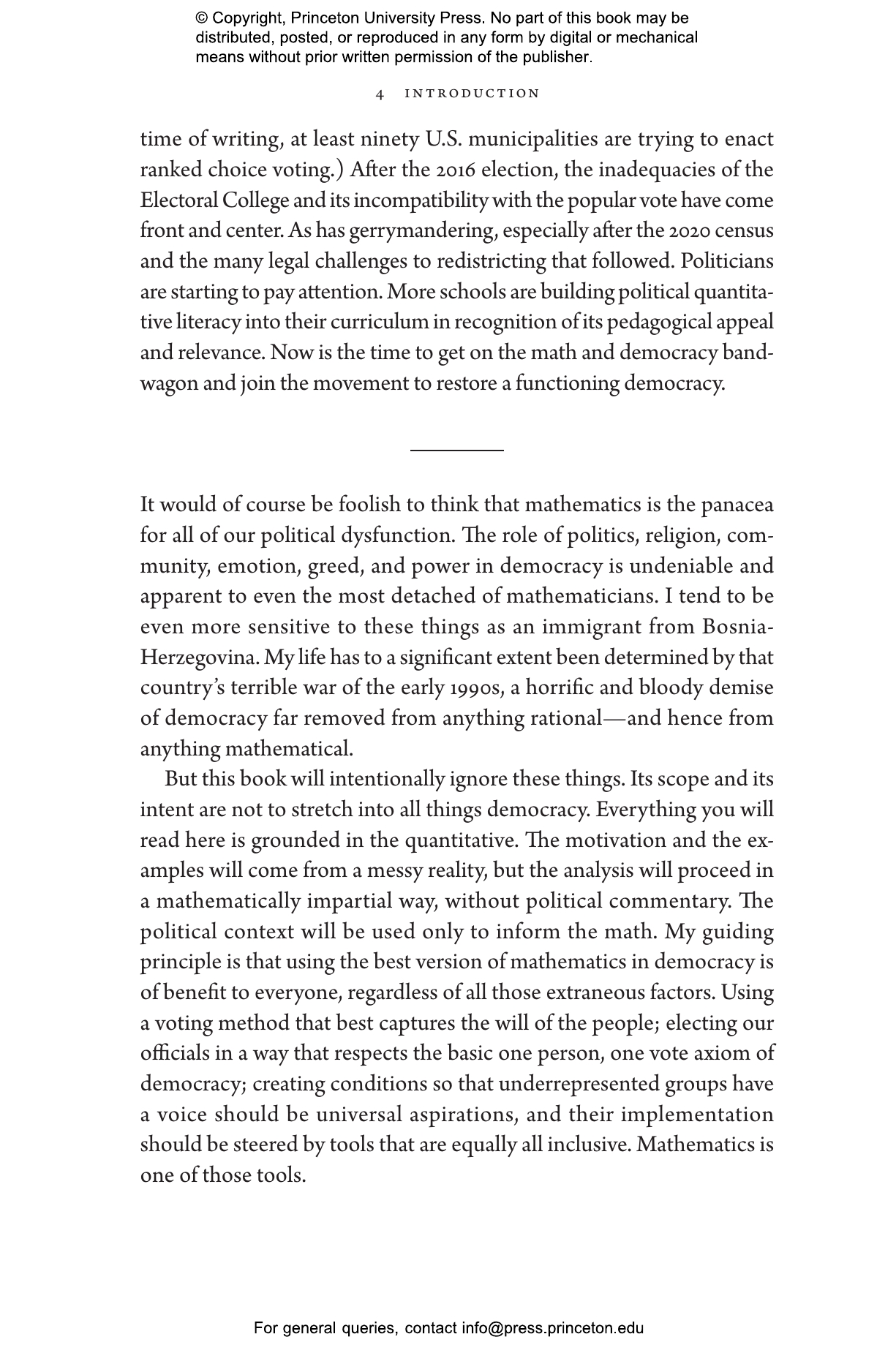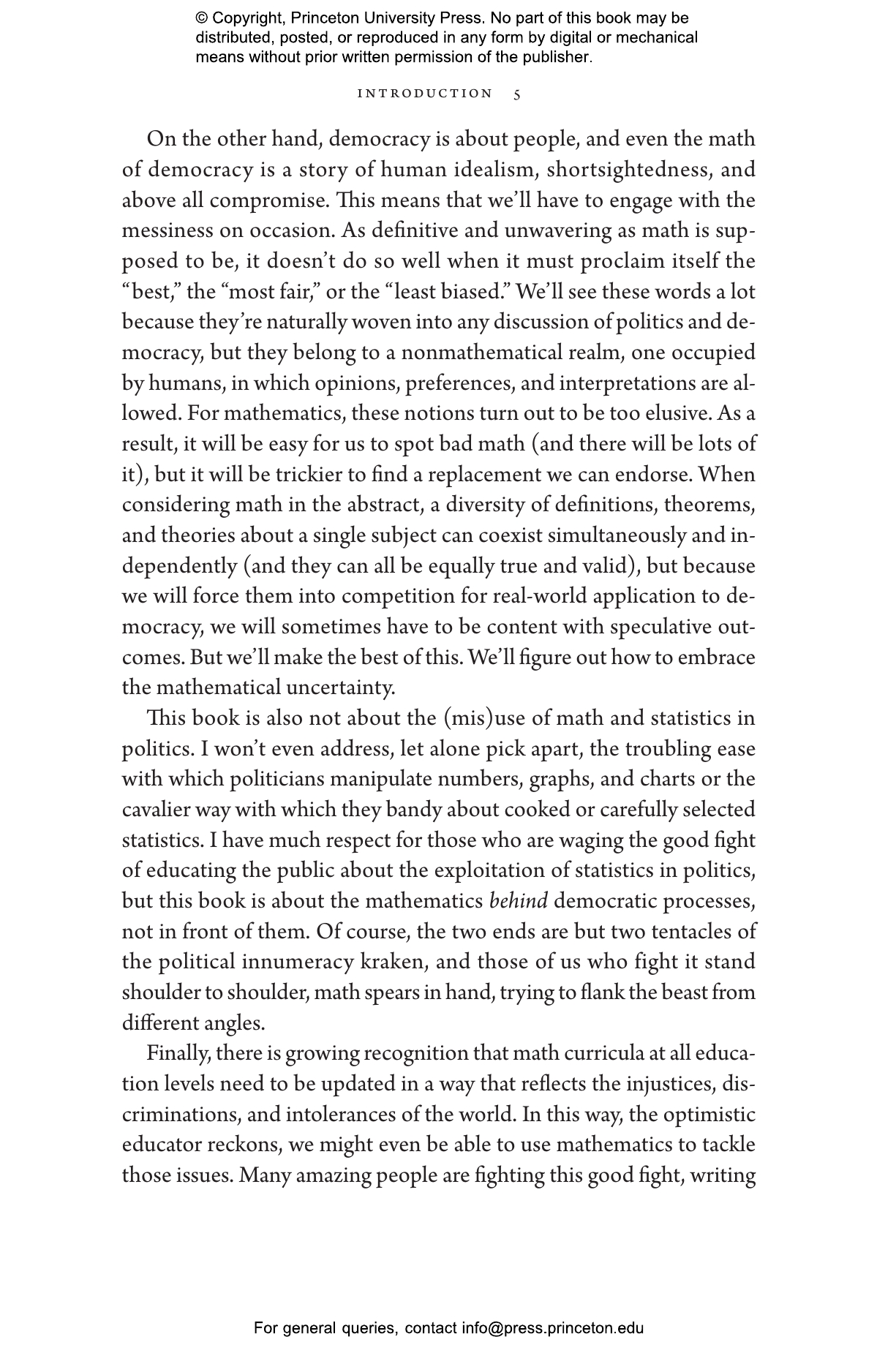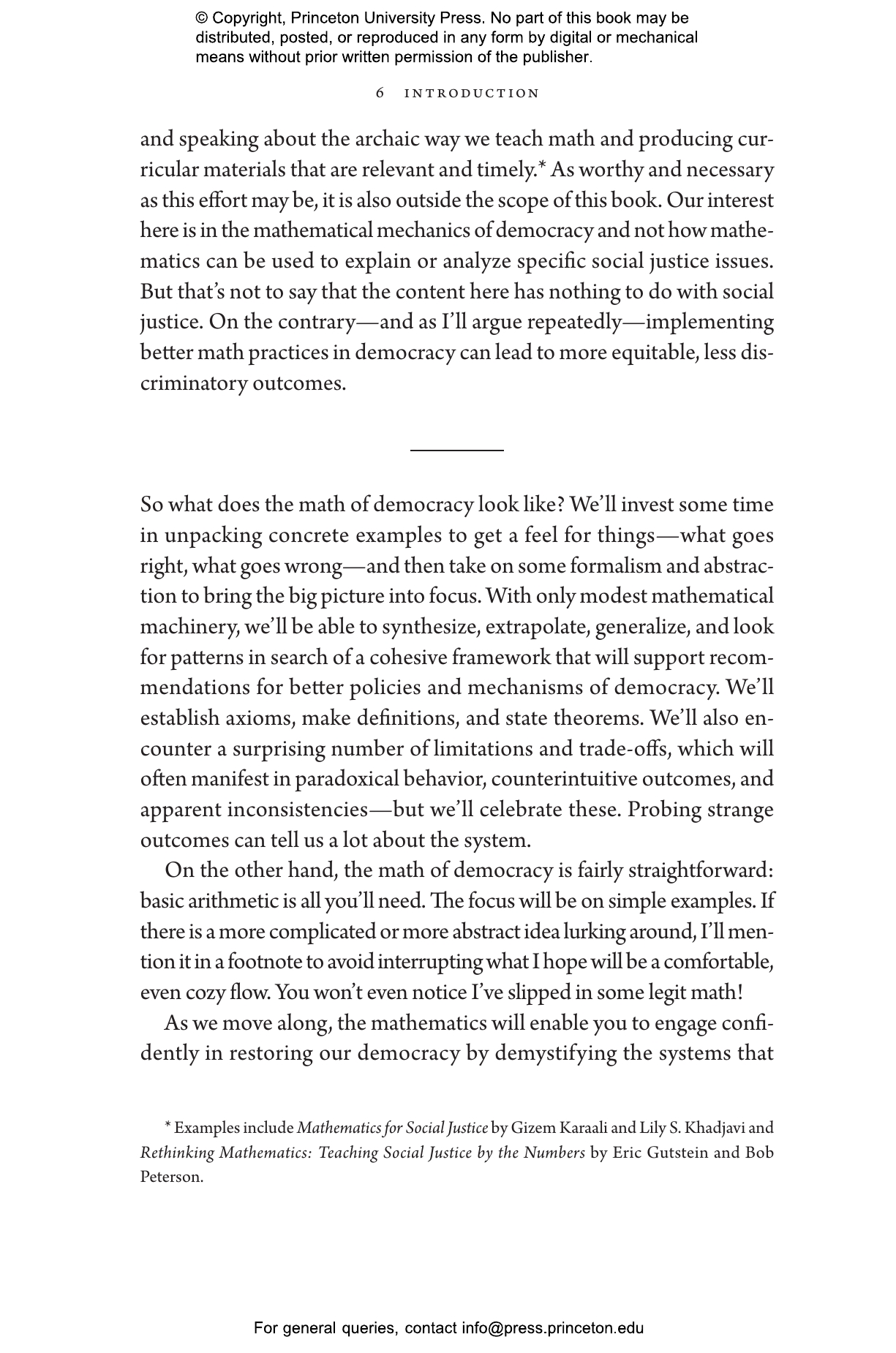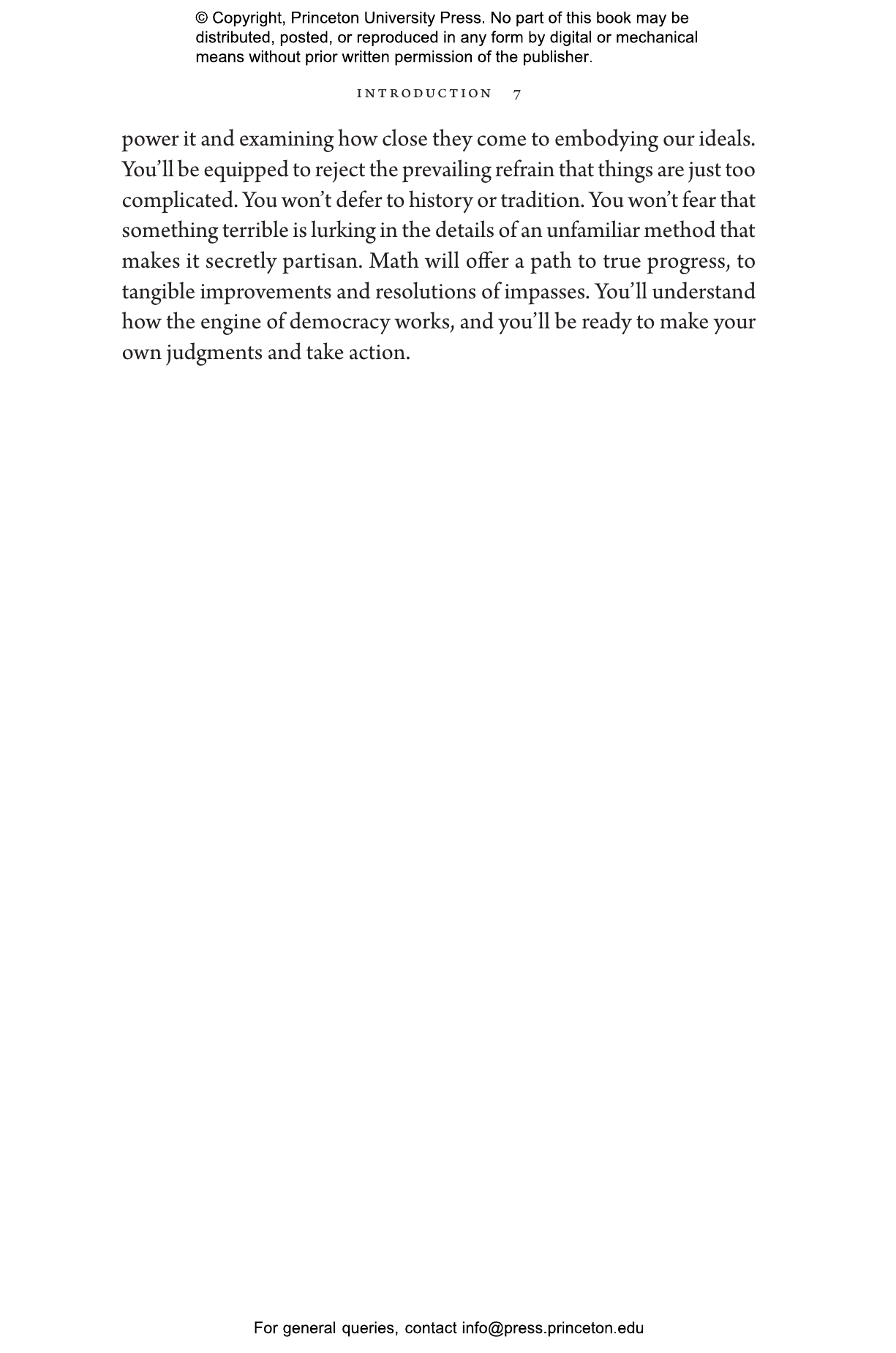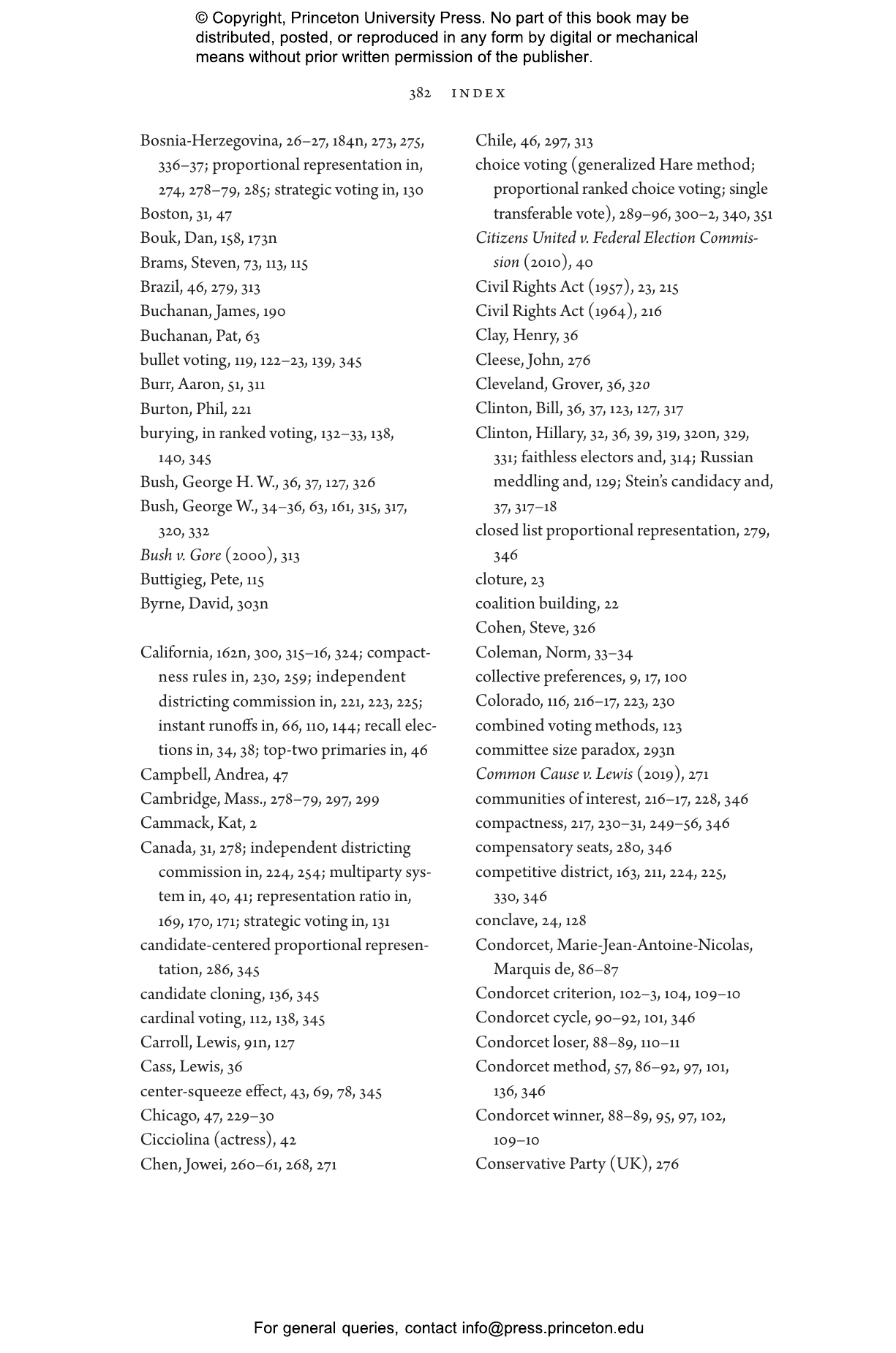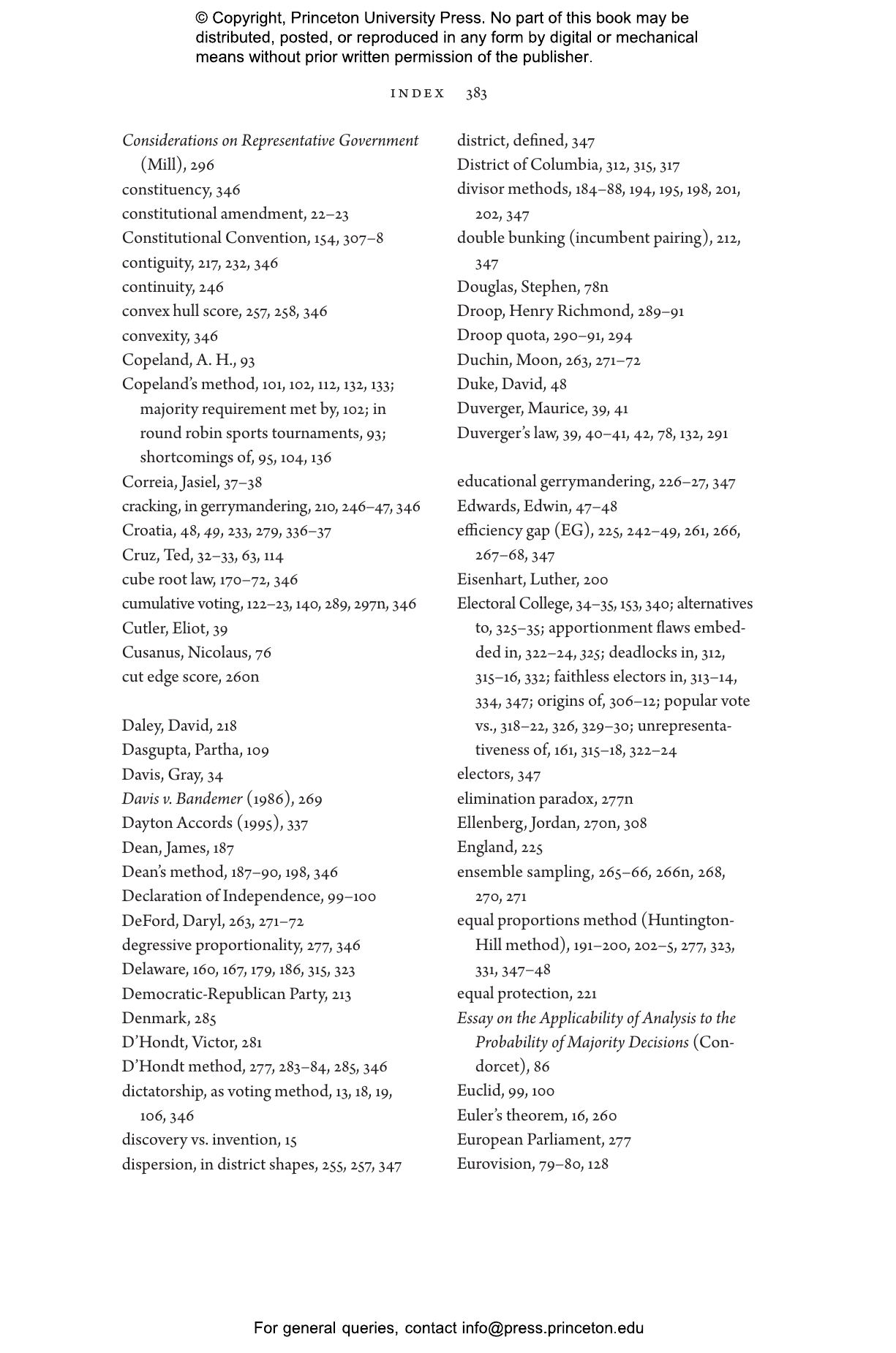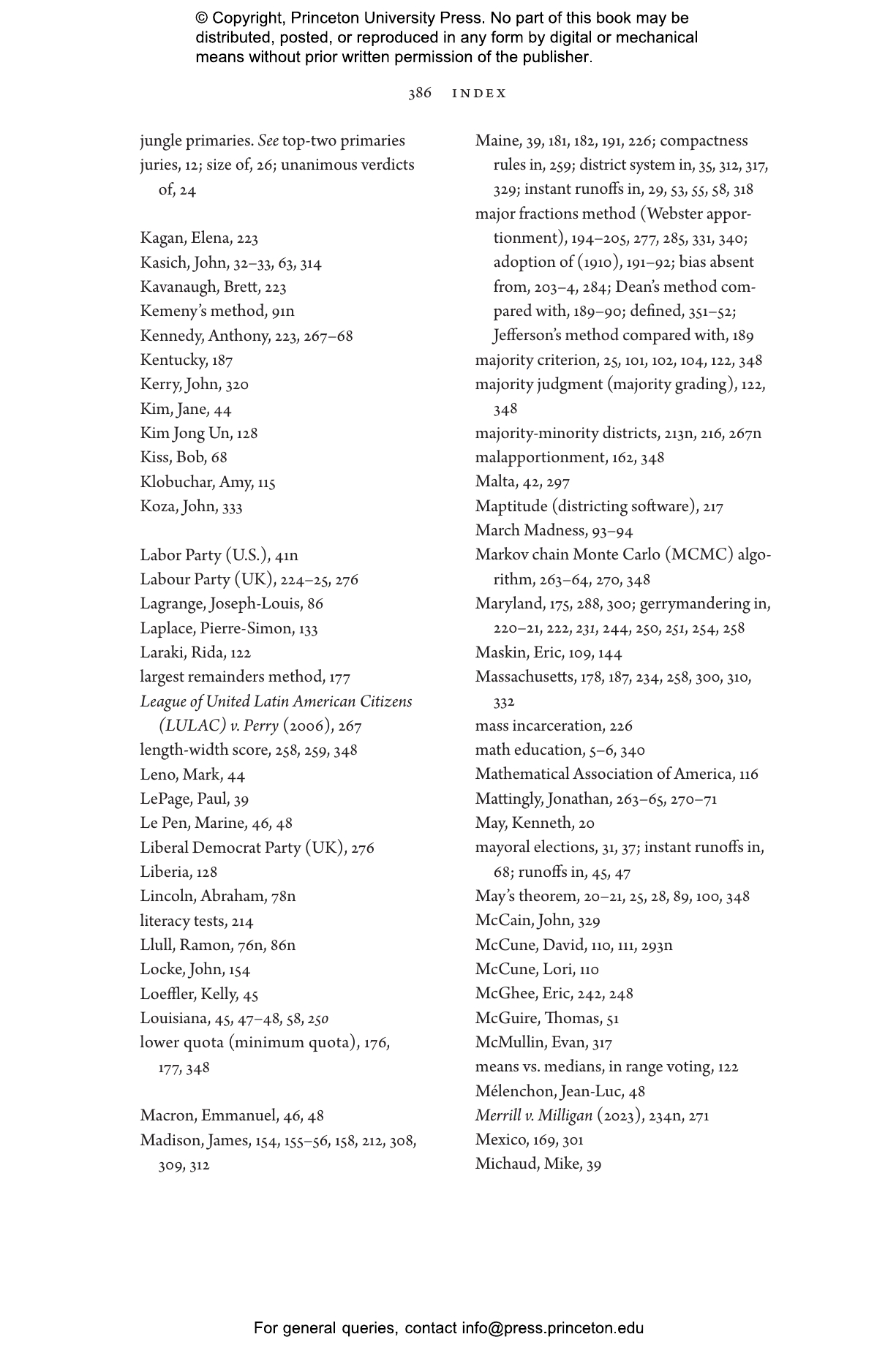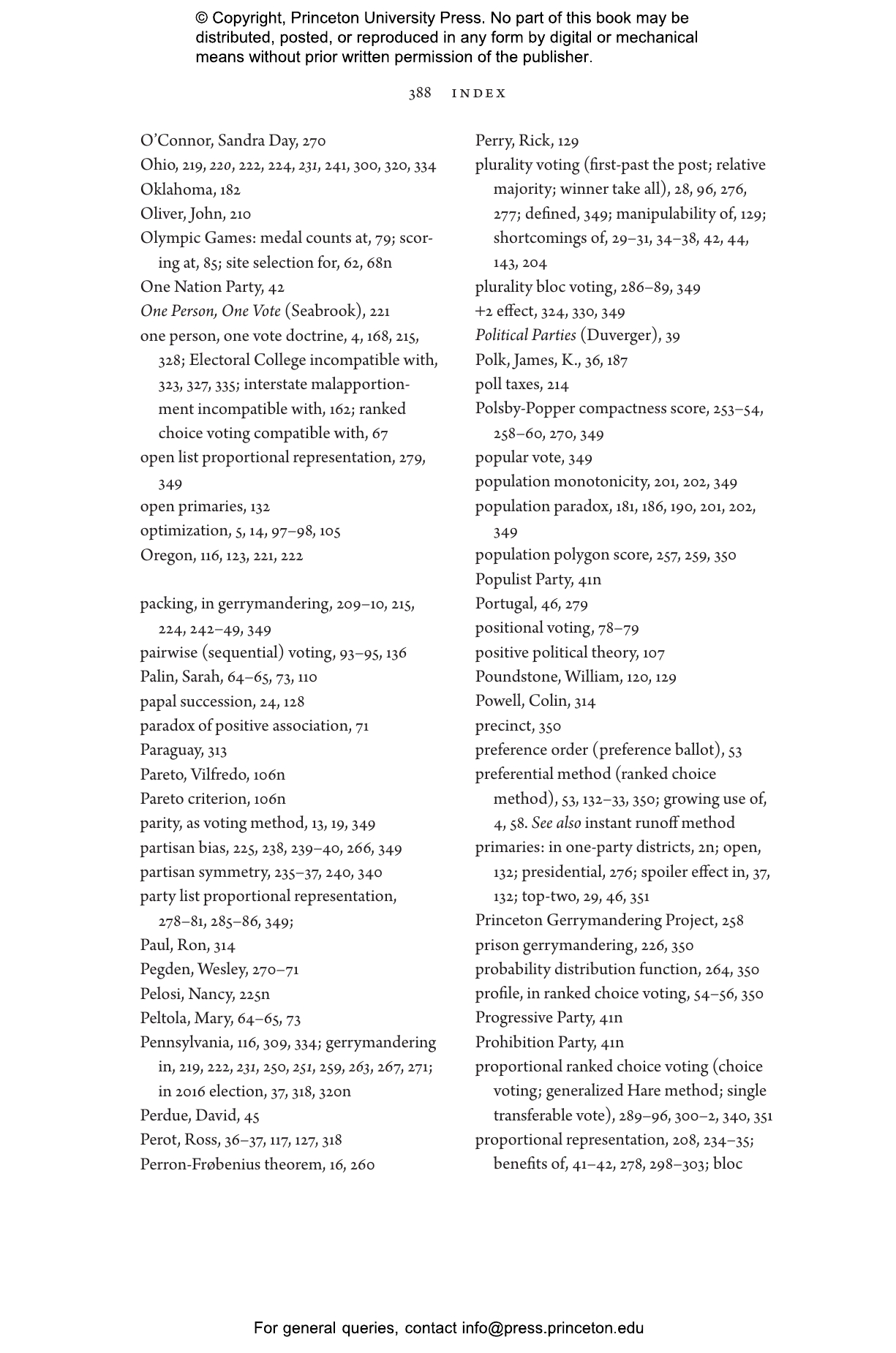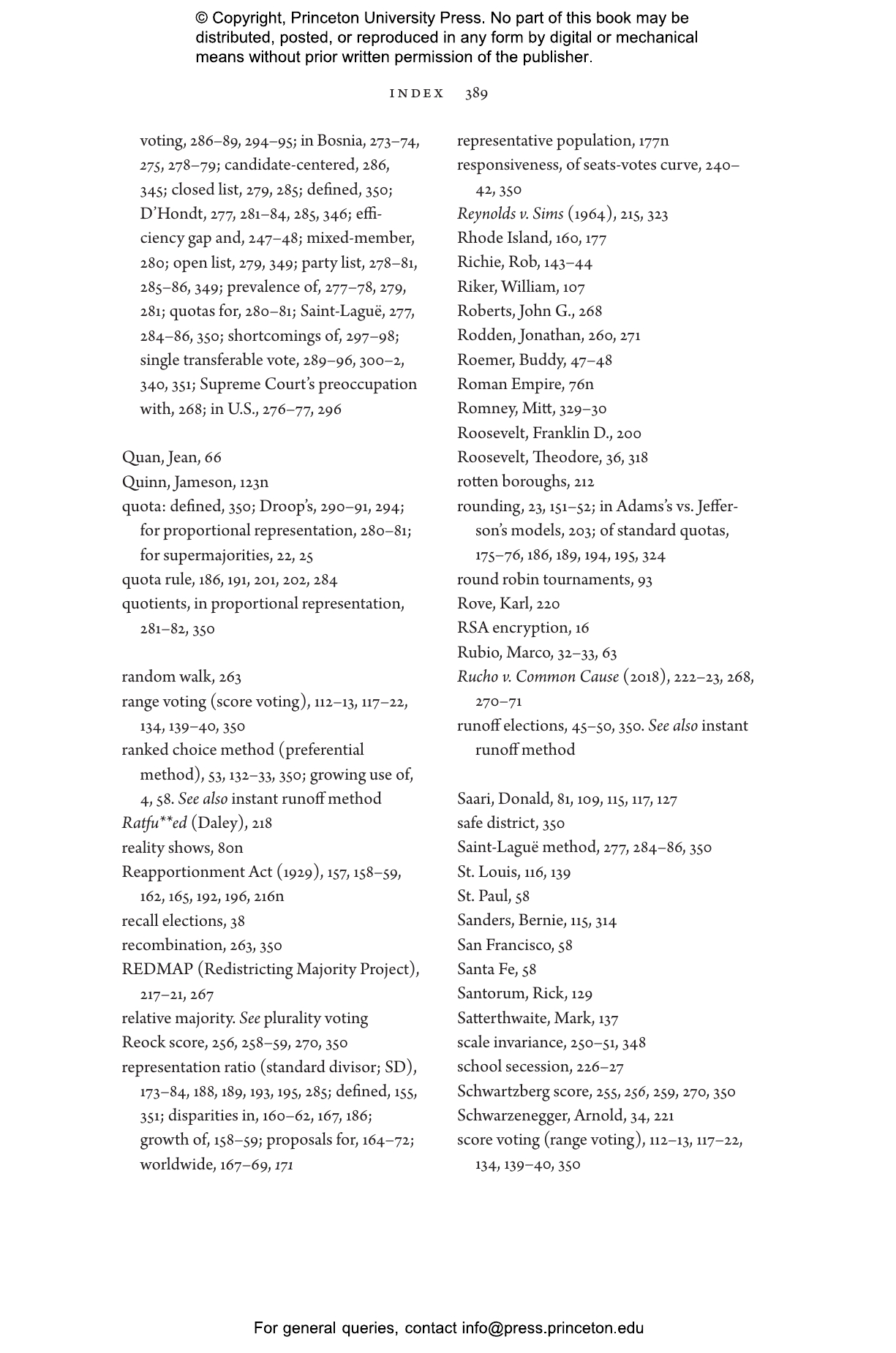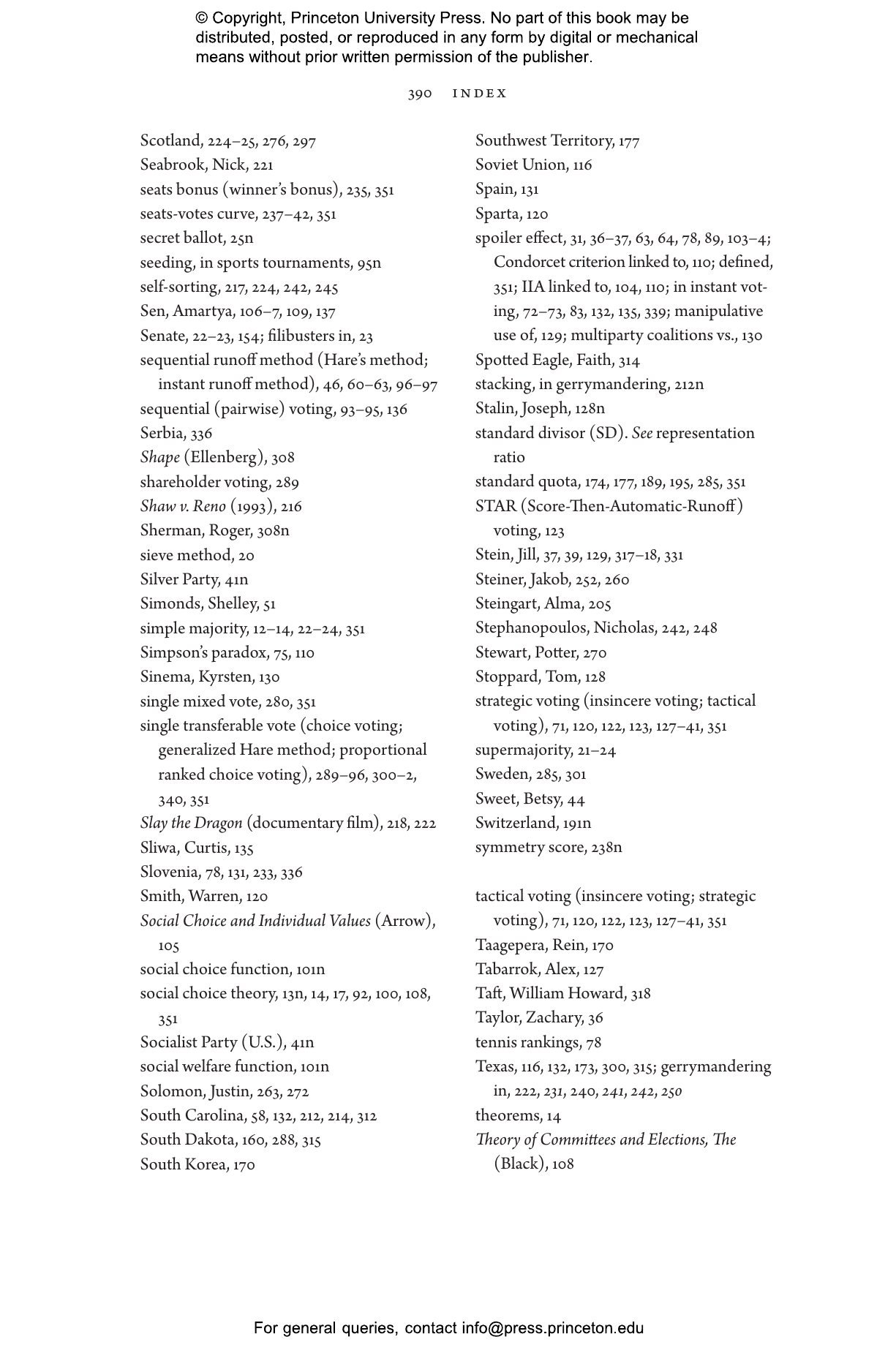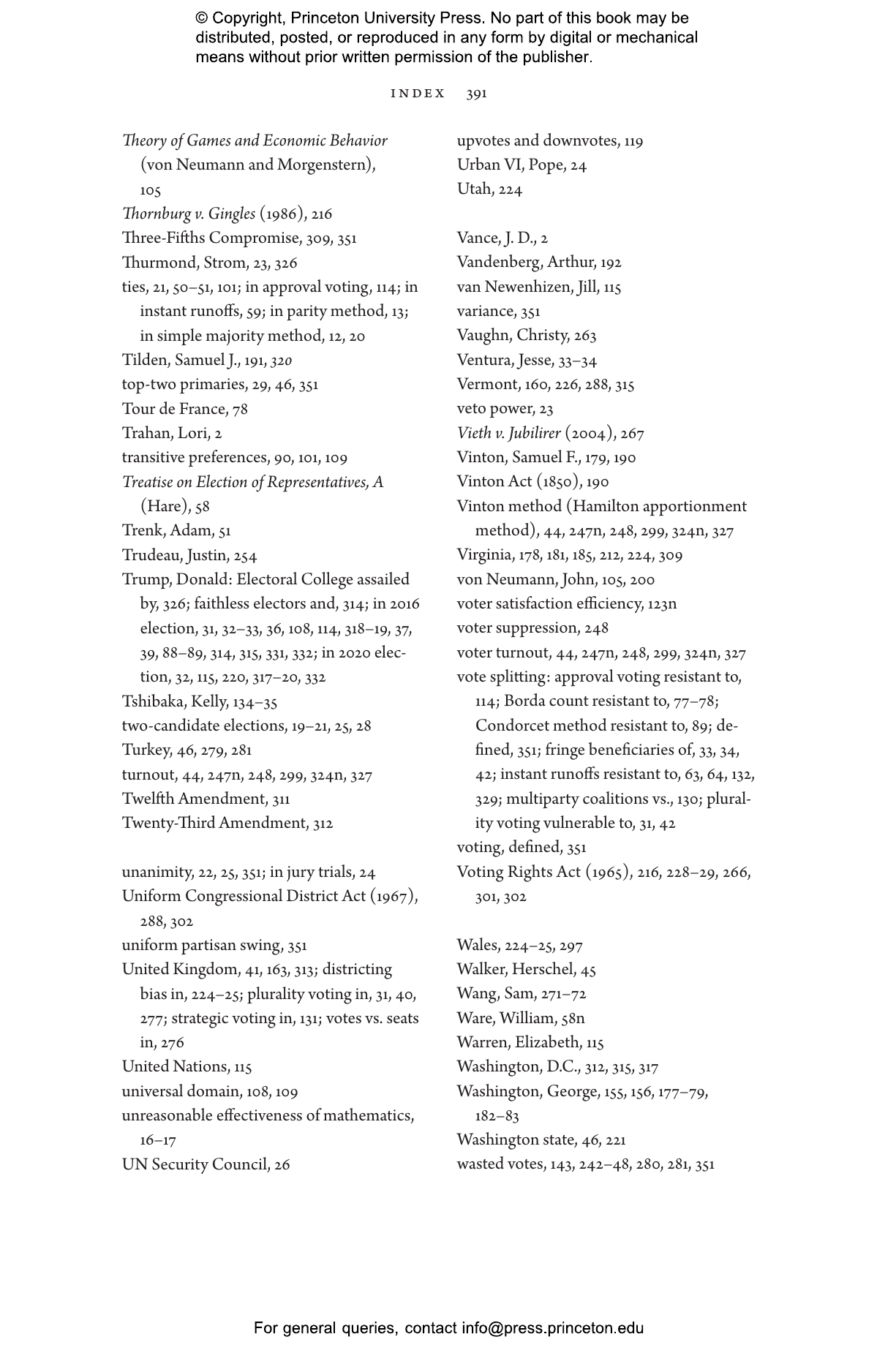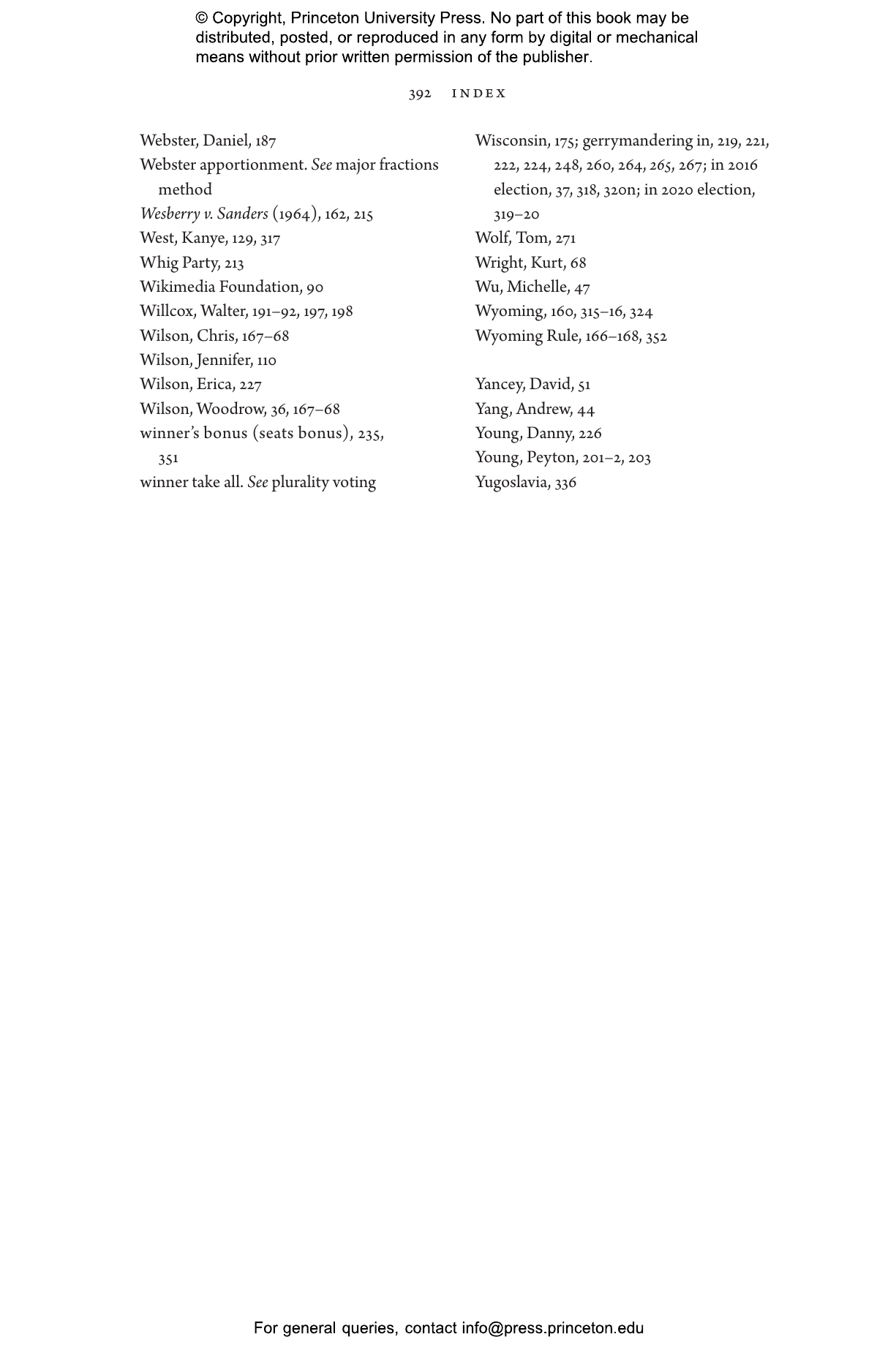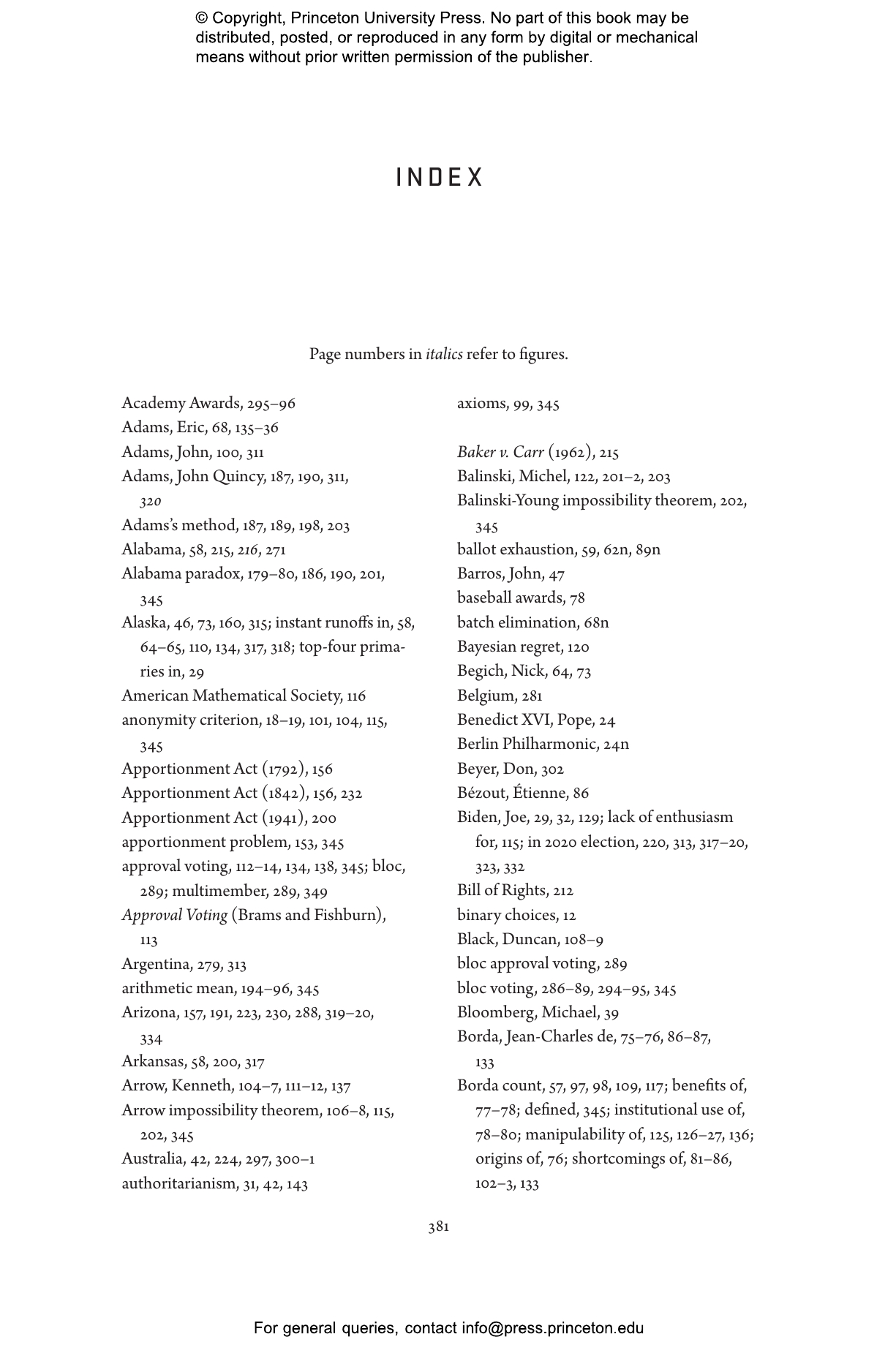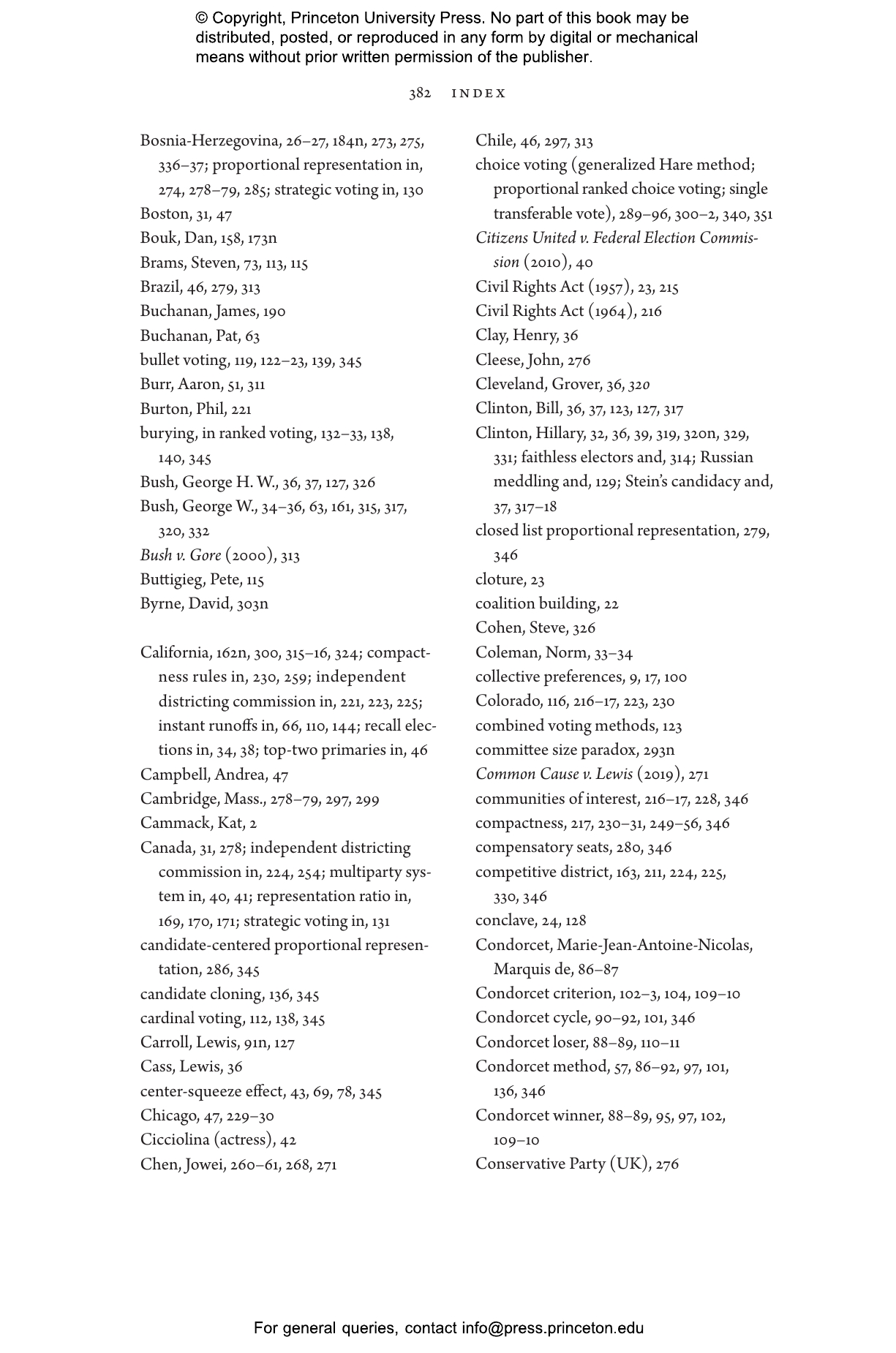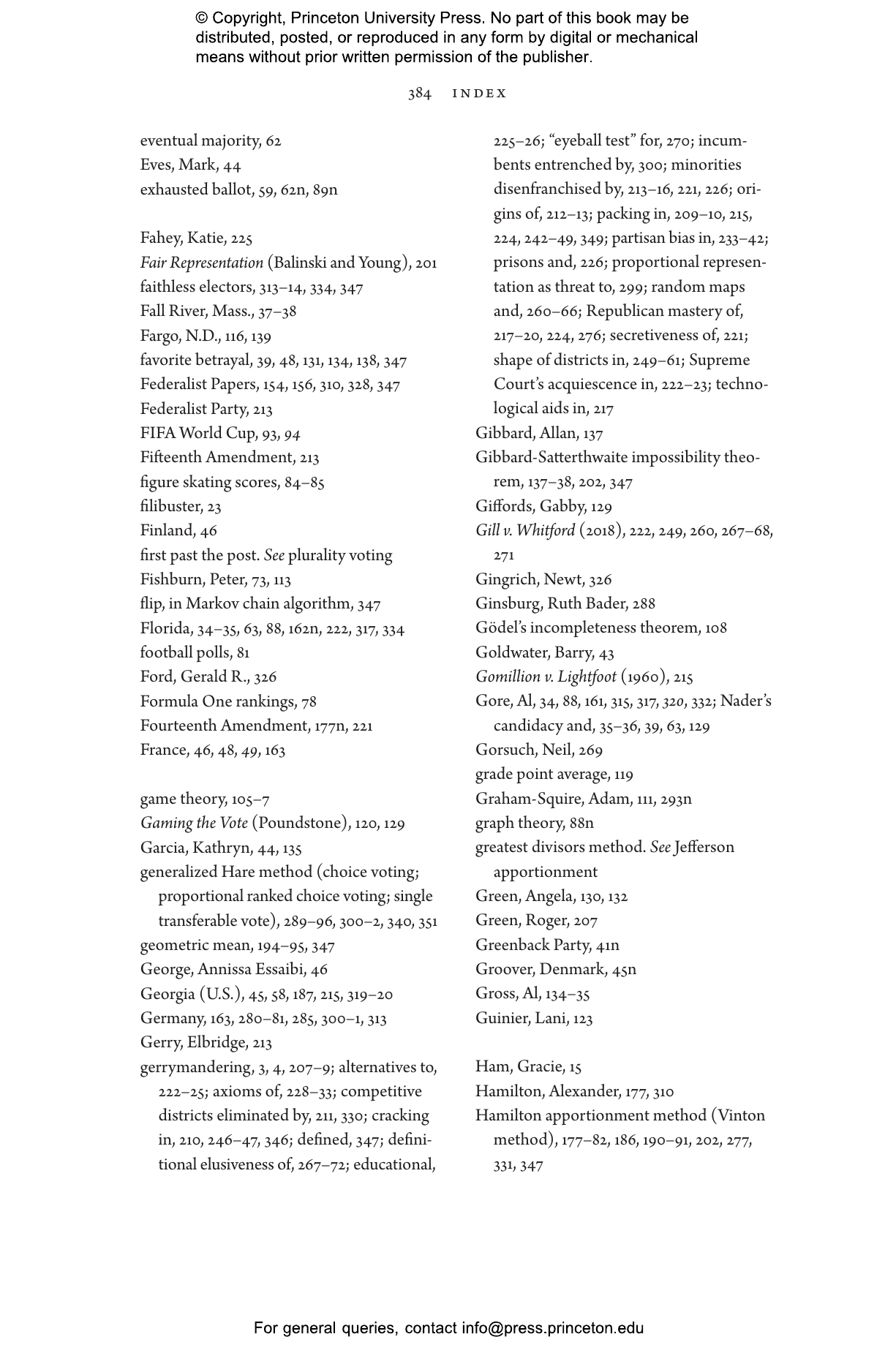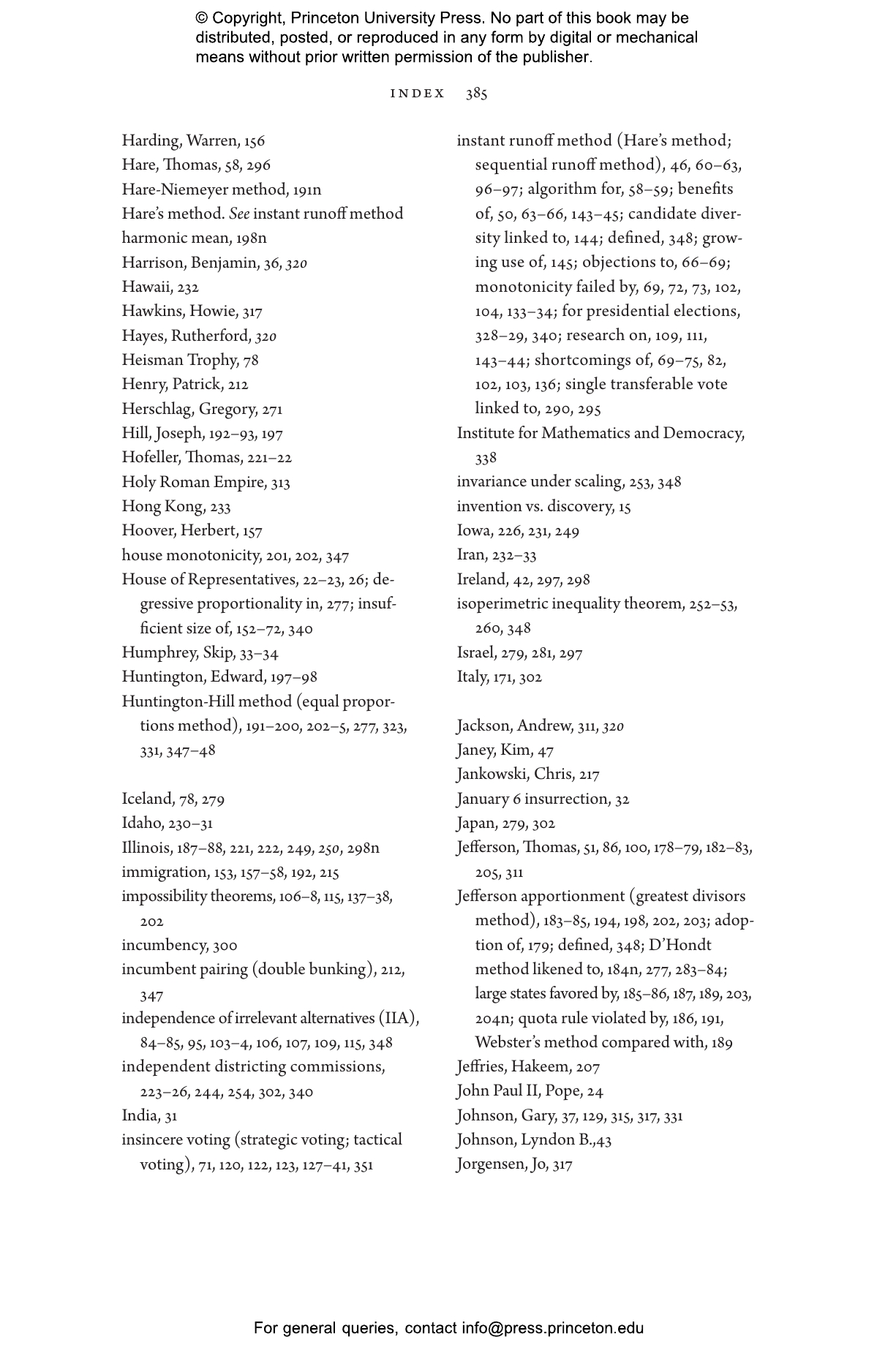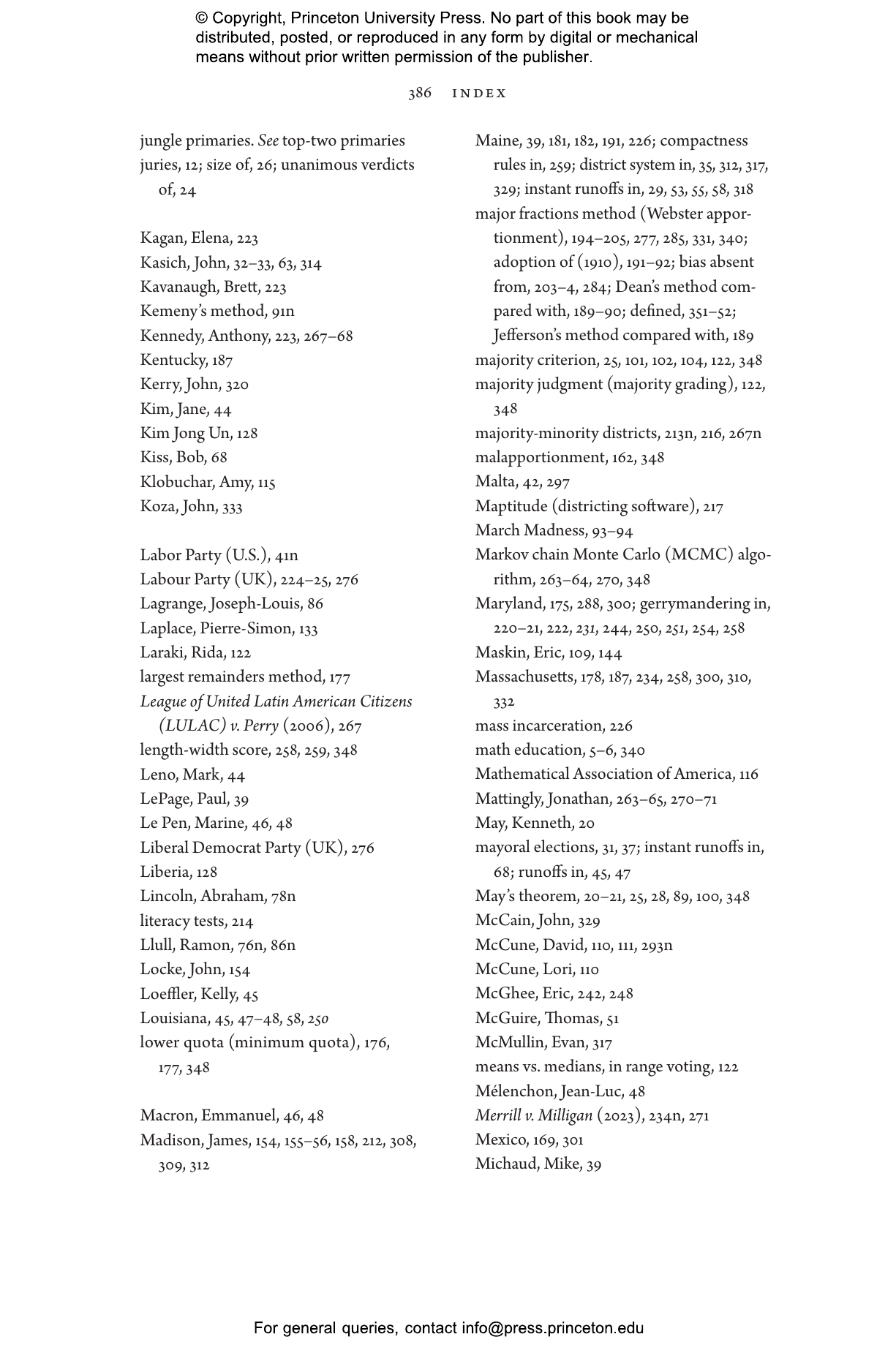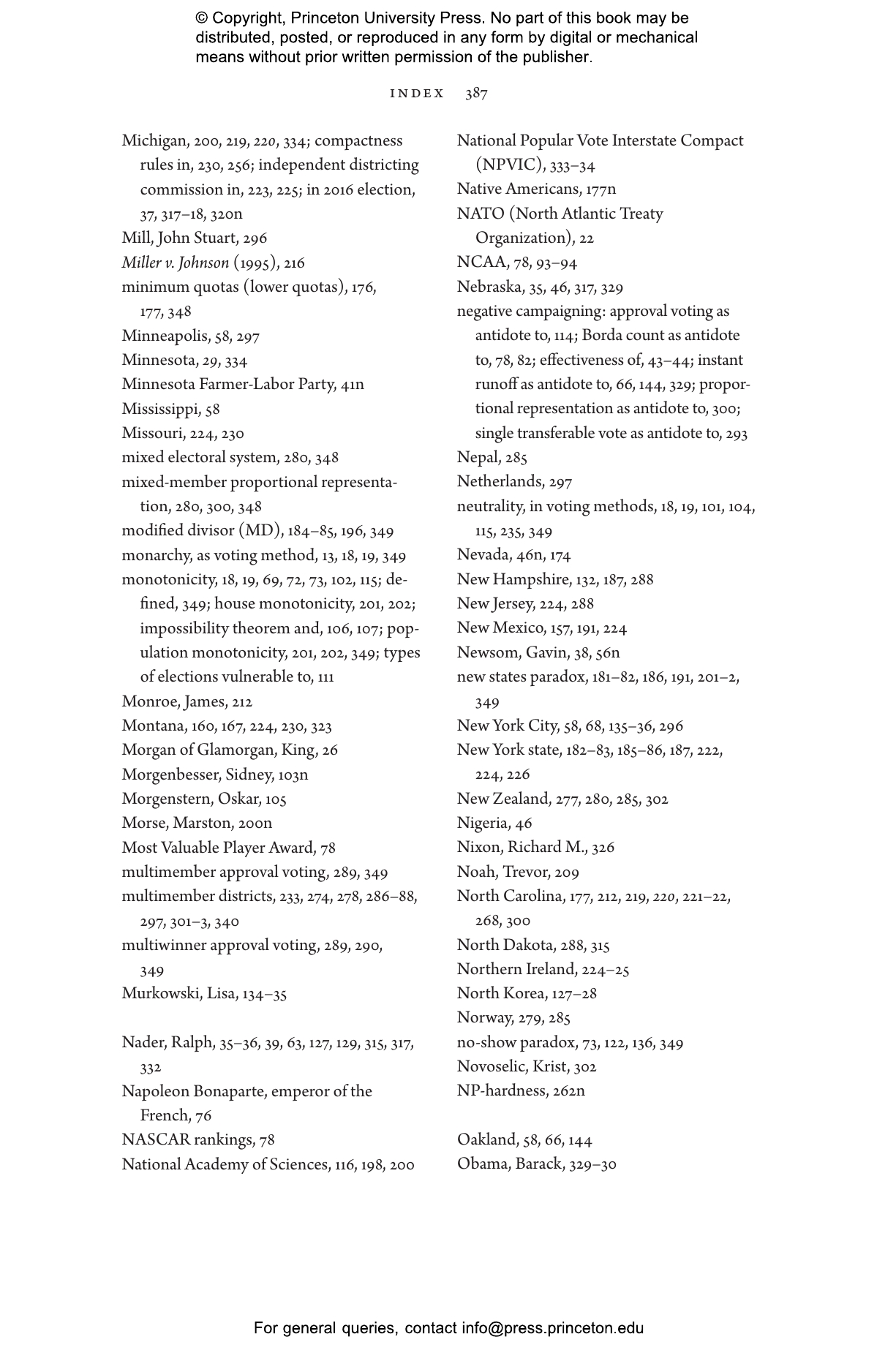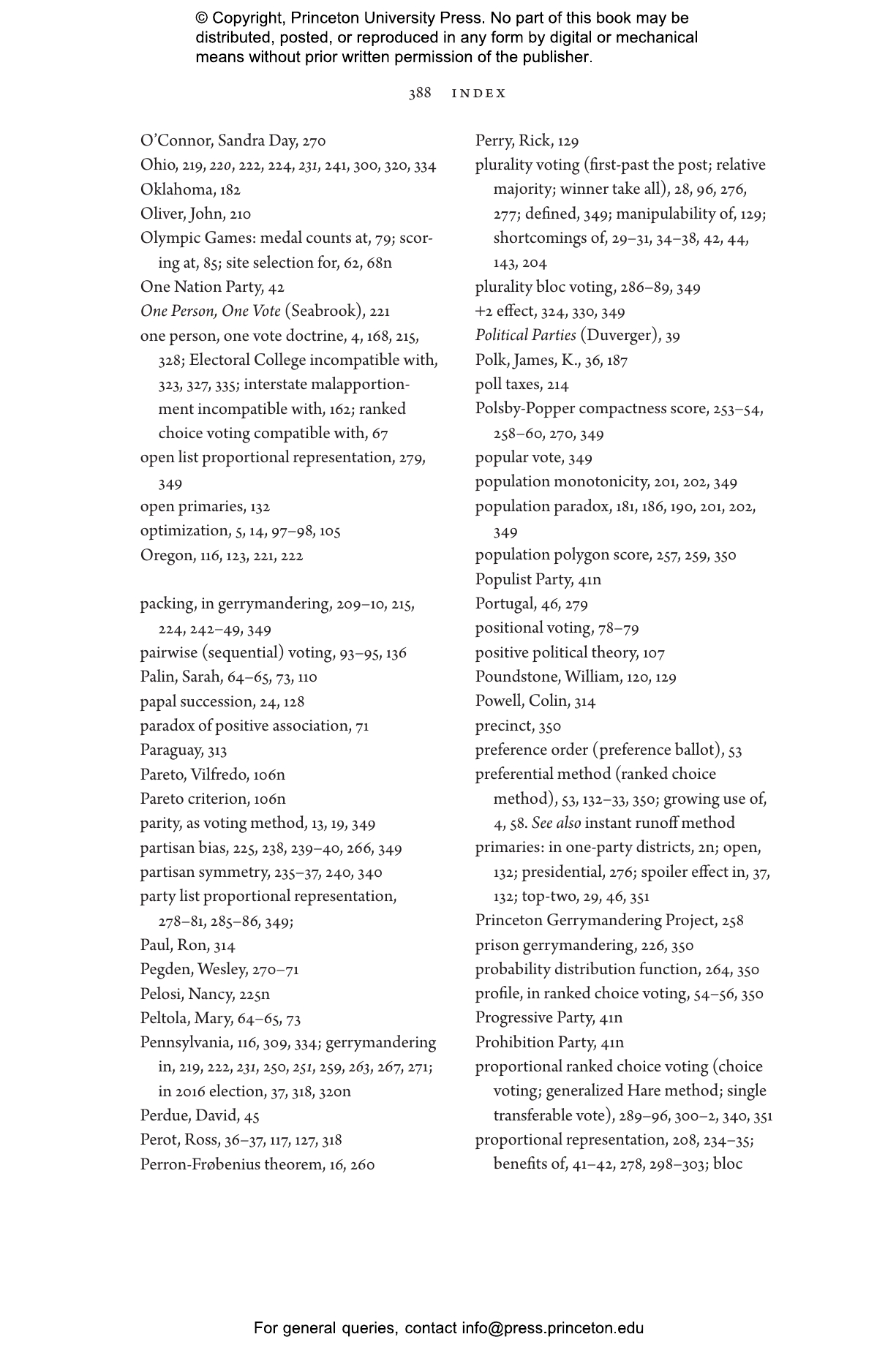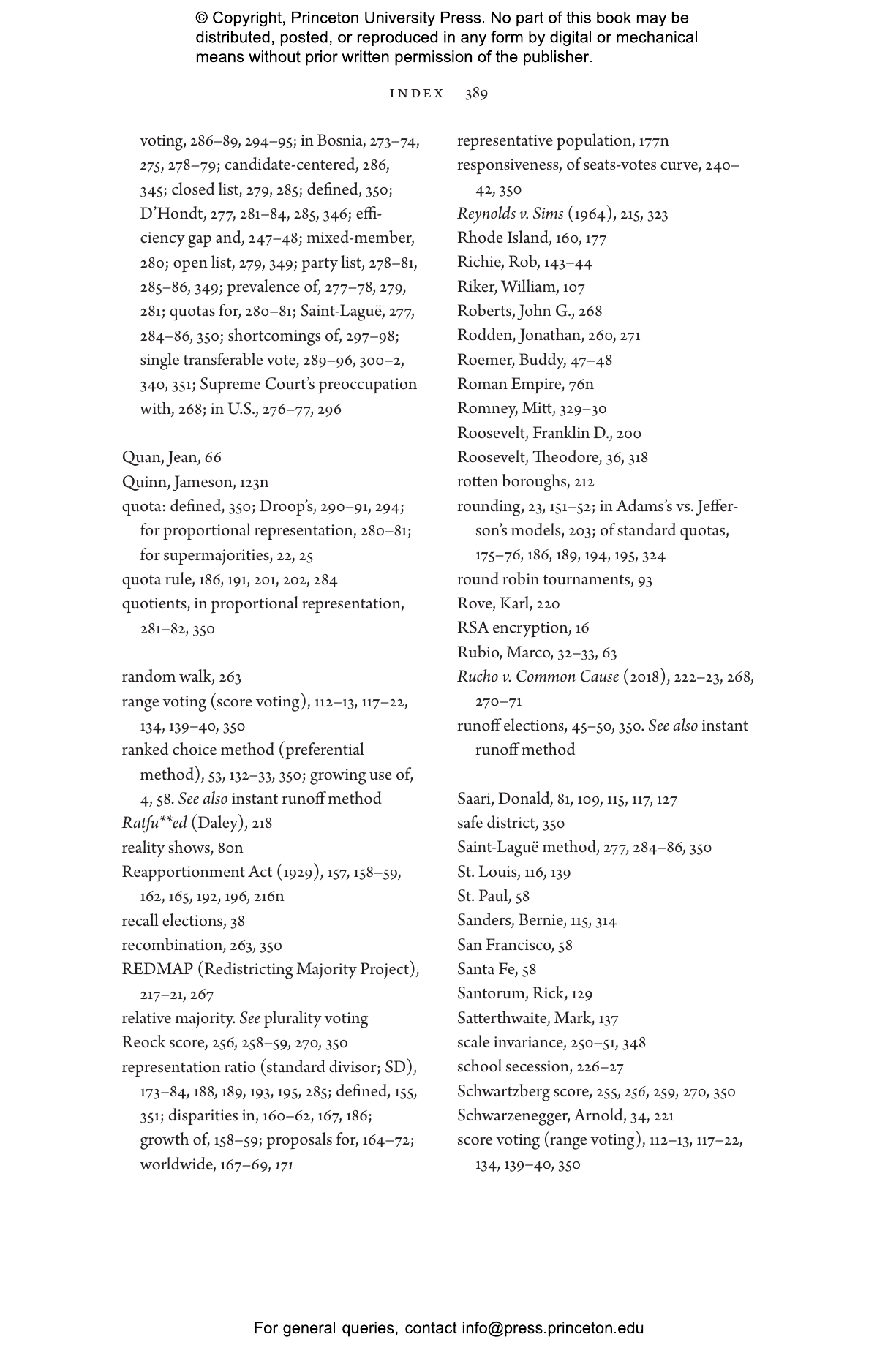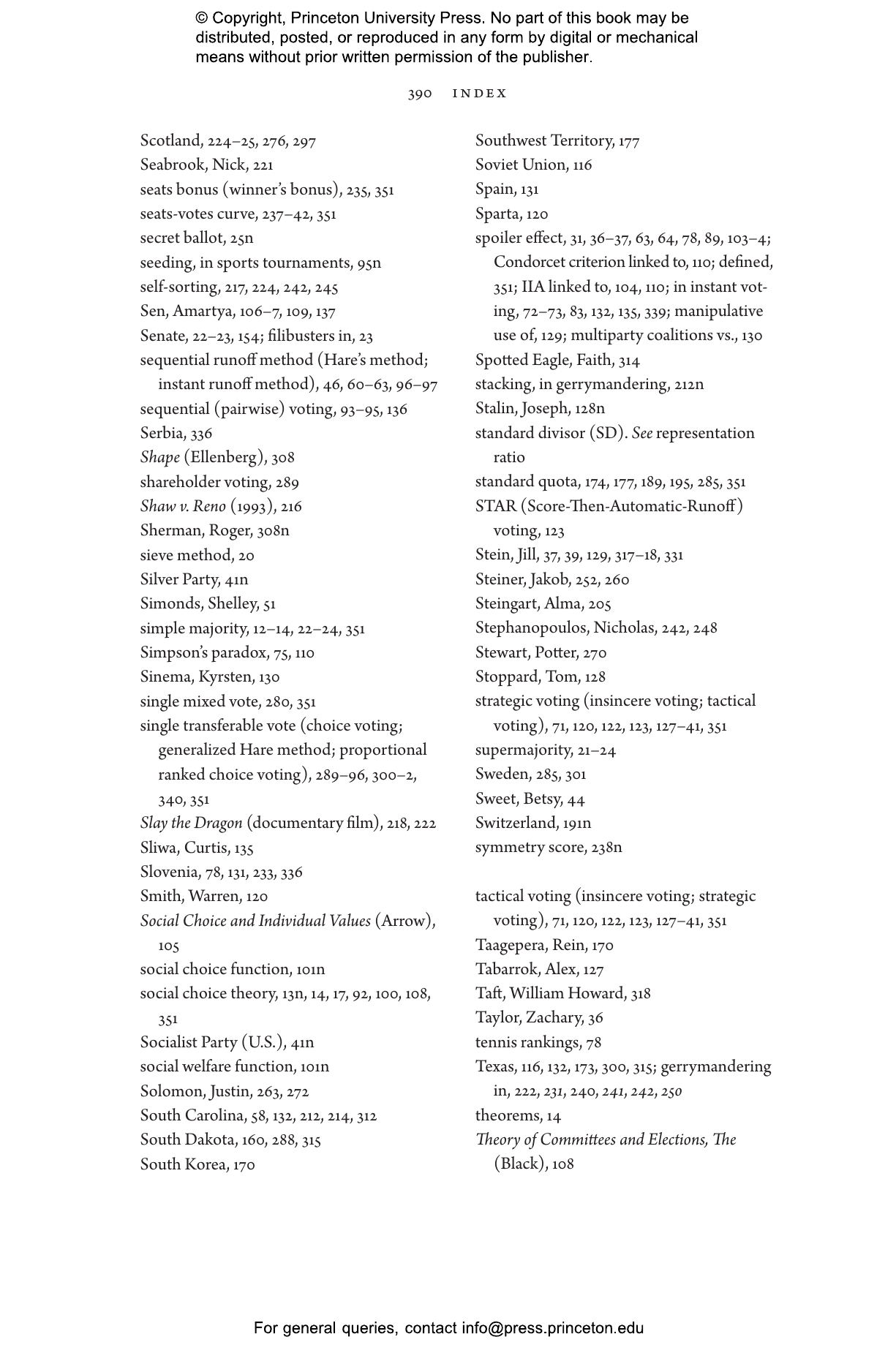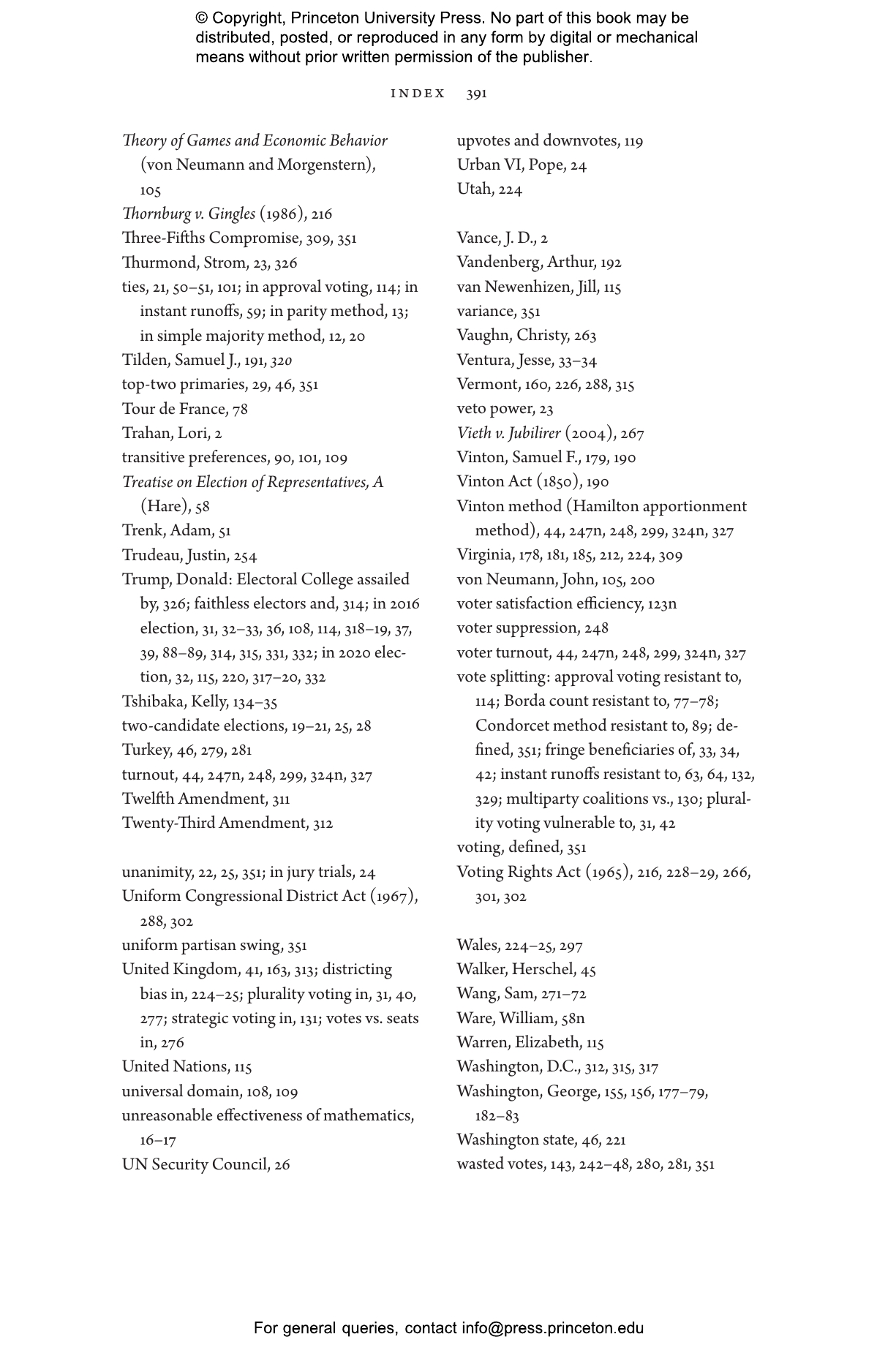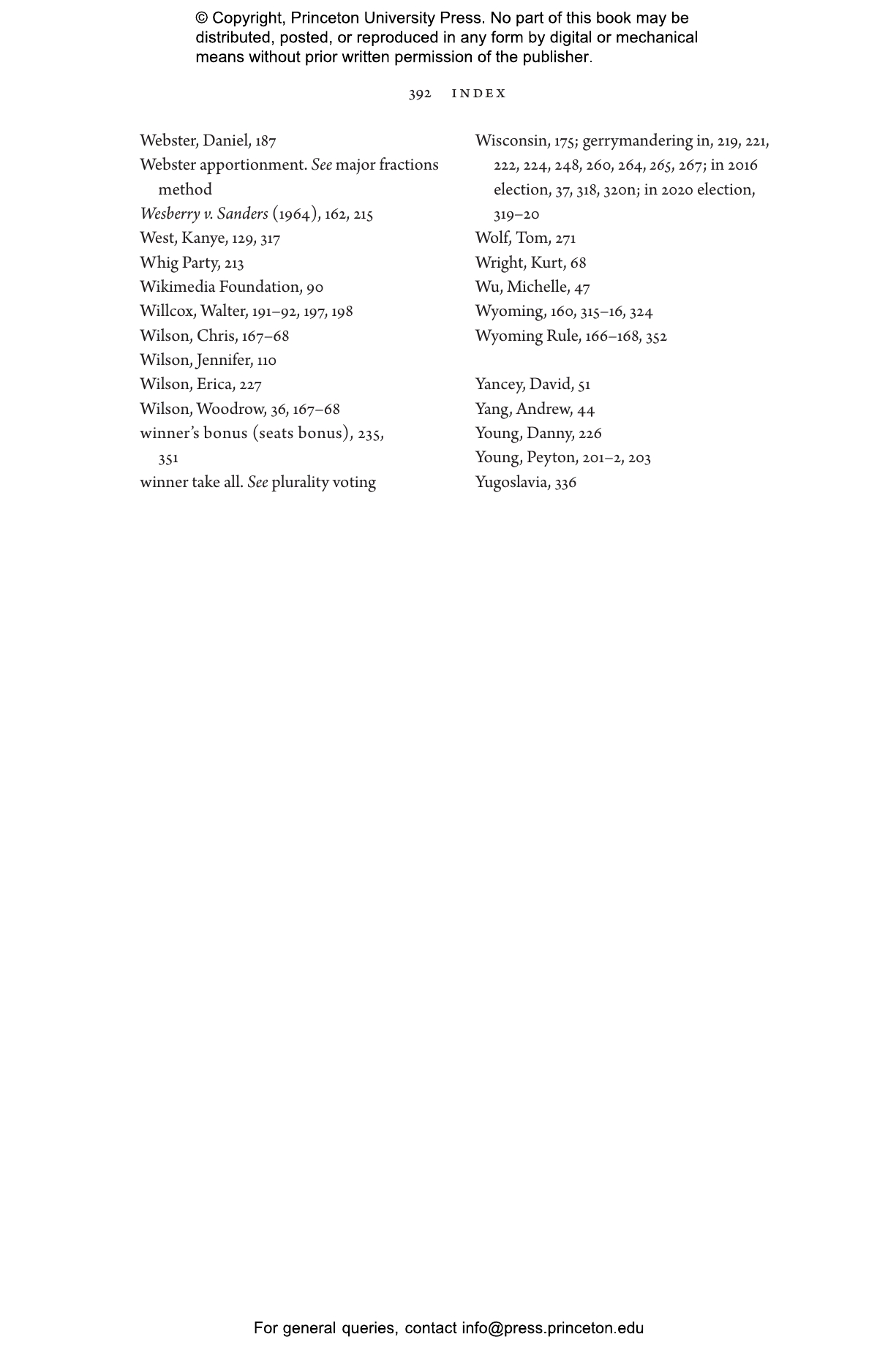What’s the best way to determine what most voters want when multiple candidates are running? What’s the fairest way to allocate legislative seats to different constituencies? What’s the least distorted way to draw voting districts? Not the way we do things now. Democracy is mathematical to its very foundations. Yet most of the methods in use are a historical grab bag of the shortsighted, the cynical, the innumerate, and the outright discriminatory. Making Democracy Count sheds new light on our electoral systems, revealing how a deeper understanding of their mathematics is the key to creating civic infrastructure that works for everyone.
In this timely guide, Ismar Volić empowers us to use mathematical thinking as an objective, nonpartisan framework that rises above the noise and rancor of today’s divided public square. Examining our representative democracy using powerful clarifying concepts, Volić shows why our current voting system stifles political diversity, why the size of the House of Representatives contributes to its paralysis, why gerrymandering is a sinister instrument that entrenches partisanship and disenfranchisement, why the Electoral College must be rethought, and what can work better and why. Volić also discusses the legal and constitutional practicalities involved and proposes a road map for repairing the mathematical structures that undergird representative government.
Making Democracy Count gives us the concrete knowledge and the confidence to advocate for a more just, equitable, and inclusive democracy.
Awards and Recognition
- Finalist for the PROSE Award in Popular Science and Mathematics, Association of American Publishers
- Winner of the Euler Prize, Mathematical Association of America
"Volić often effectively follows up clear illustrations using small sets of data with real-world examples. . . . Overall, this fascinating book is thought provoking and strongly recommended."—N. W. Schillow, Choice
"The book reads nothing like a math textbook. It stays approachable, even while diving deep into its subject matter. . . . There’s no one better to teach this material than Ismar Volić."—Deb Otis, National Civic League
"As the United States grapples with persistent challenges in its electoral system, Volić’s work is a timely contribution, offering a rigorous analysis of how mathematical principles can enhance the fairness and integrity of democratic processes."—Hank Lacey, Law of the West
"Volić surveys voting and apportionment methods, including impossibility results, in a readable way with real-life examples."—Mathematics Magazine
"Provides insight into mathematical thinking and creativity, and analytical tools for critically assessing policy. . . . Engaged readers will find inspiration to apply these insights in their own exploration."—Jan Cameron, The Mathematical Intelligencer
"[Offers] thought-provoking discussions of very relevant points about the structure of our government . . . and the problematic ways our votes count (or don't). While there may be no perfect system, we can use math to do better in our democracy; learn how in this incredibly up-to-date book."—Emily J. Olson, Notices of the American Mathematical Society
"Mathematicians have developed fairness axioms, voting systems, ensemble analysis, and many more tools to help us understand democracy and representation and make better choices. Voli'c's book opens the door to these topics for a general audience and makes the case that to understand democracy, we need math, and luckily that math is accessible to everyone."—Anita T. Layton, SIAM Review
“The rules for electing candidates to public office have a profound effect on democracy, a fact not generally appreciated. Ismar Volić’s beautifully written book shows just how crucial these rules are—and how they can be improved.”—Eric Maskin, Nobel Laureate in Economics, Harvard University
“A clear, accessible, and enjoyable introduction to the mathematical machinery behind American democracy. Challenging us to imagine how elections could be different, Volić explains how mathematicians think about the basic elements of our democratic system, from voting and apportionment to gerrymandering. In a moment when many worry about American polarization, Volic’s perspective is refreshing and necessary.”—Alma Steingart, Columbia University
“Do you remember how shocked you were at the outcome of the 2016 presidential election? One candidate received millions more votes, and yet she lost! The Electoral College was a major culprit, but there are lots of other ways for seemingly reasonable processes to go astray. In Making Democracy Count, you will learn how the immutable mathematical laws behind commonly accepted voting schemes make such astonishing outcomes possible. Read this book and you will learn what can be done to make the word ‘democracy’ achieve what it claims. Highly recommended.”—Paul J. Nahin, author of The Mathematical Radio
No known hazards or warnings
Accessibility Features
-
Inaccessible, or known limited accessibility
-
No known hazards or warnings


